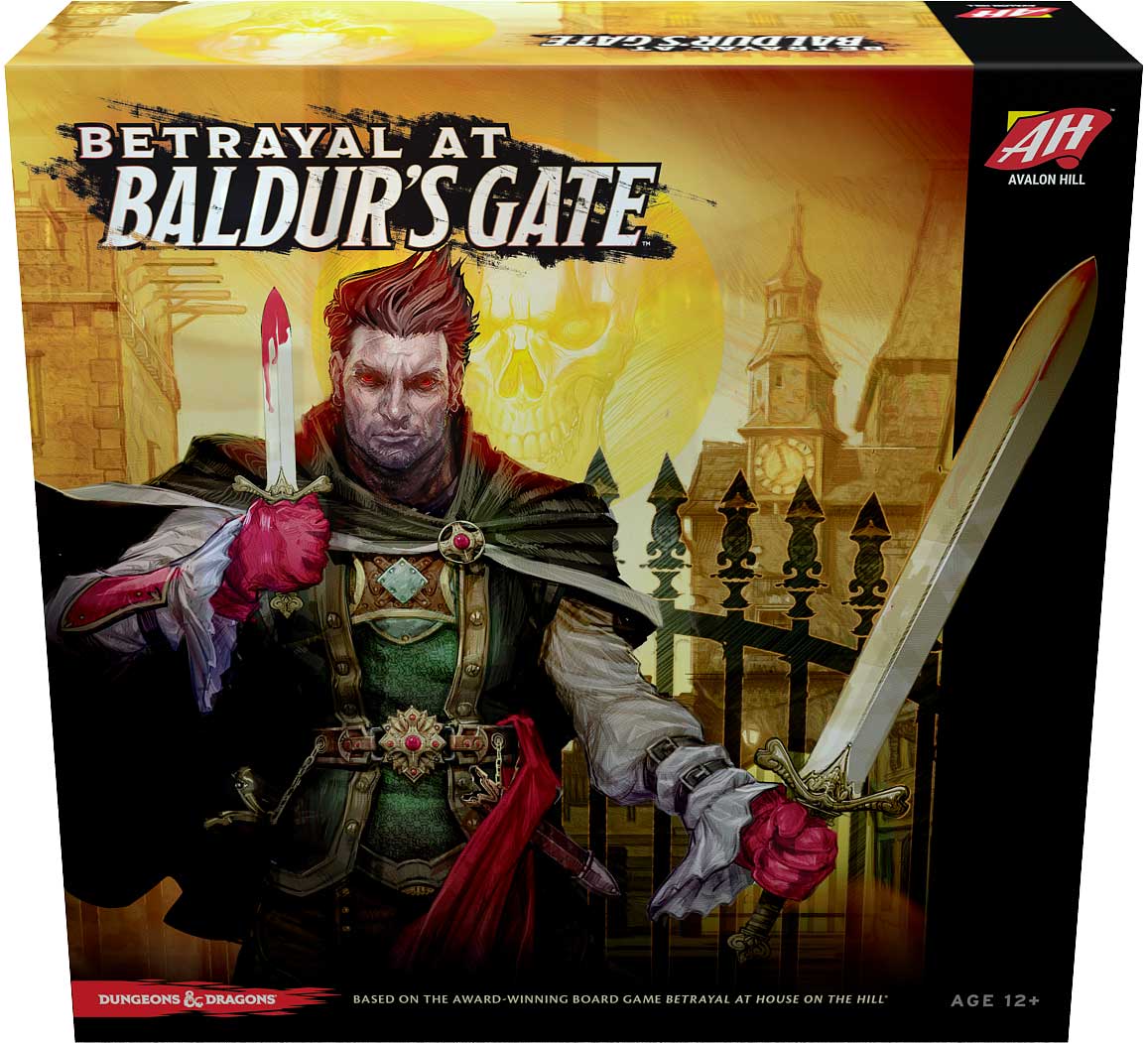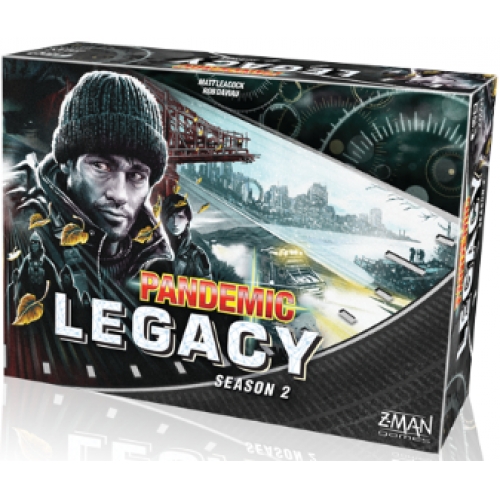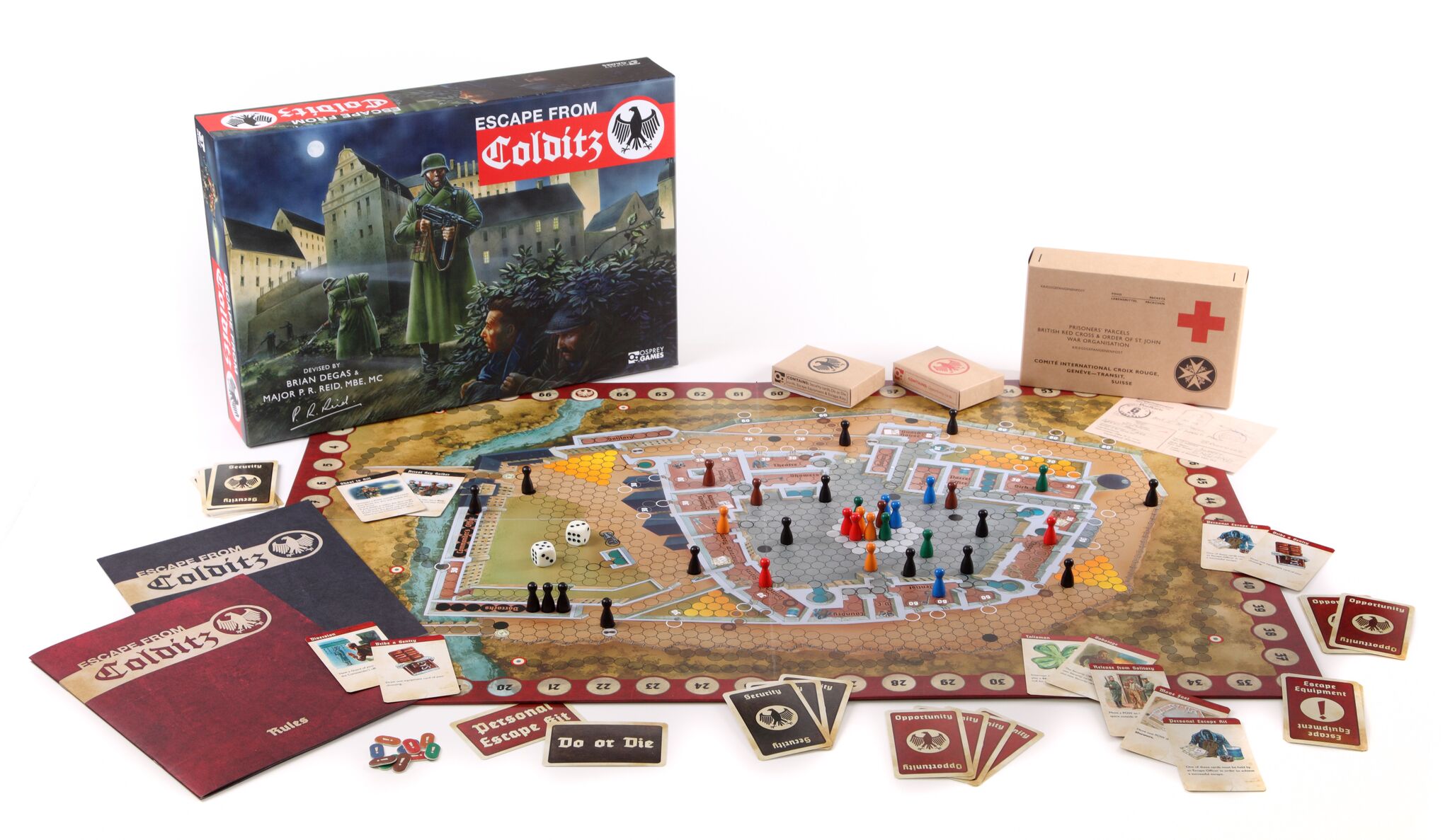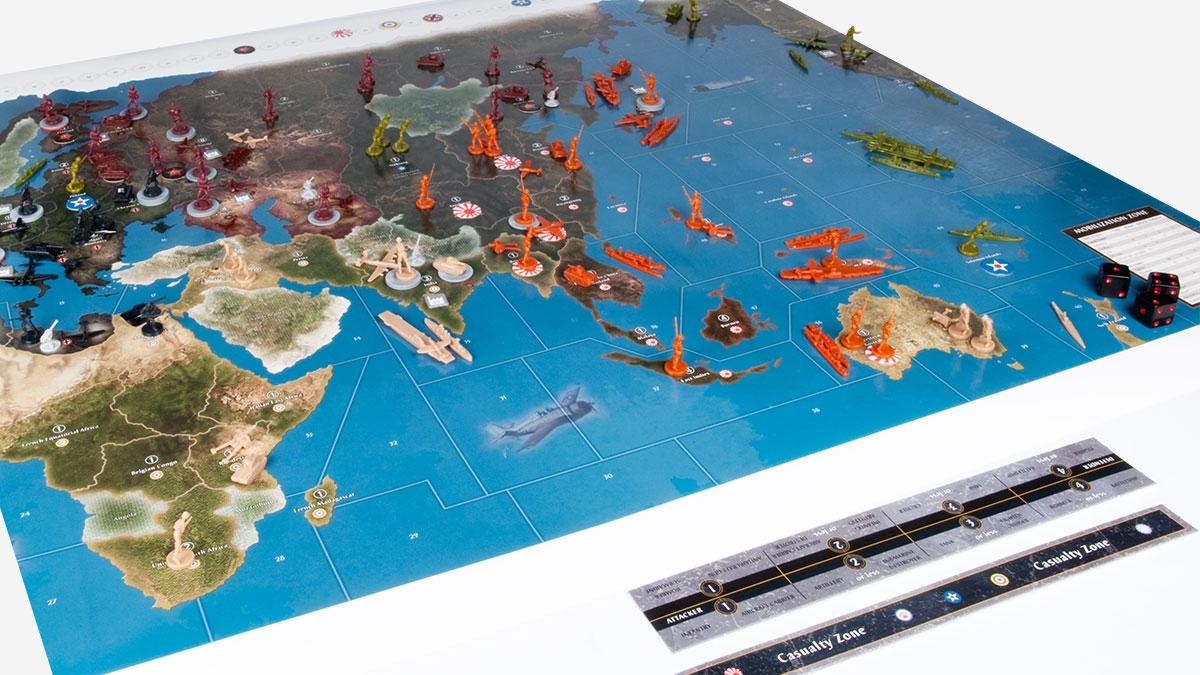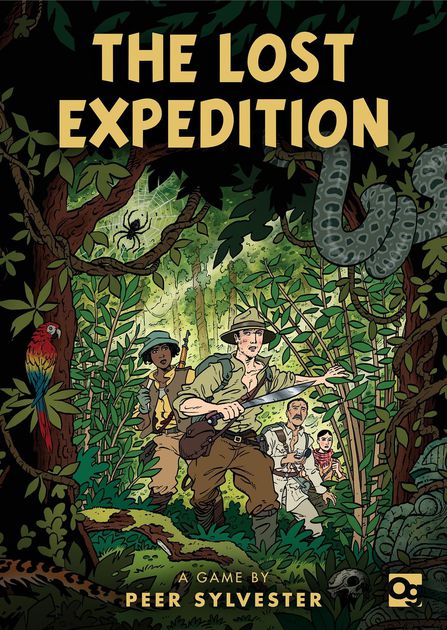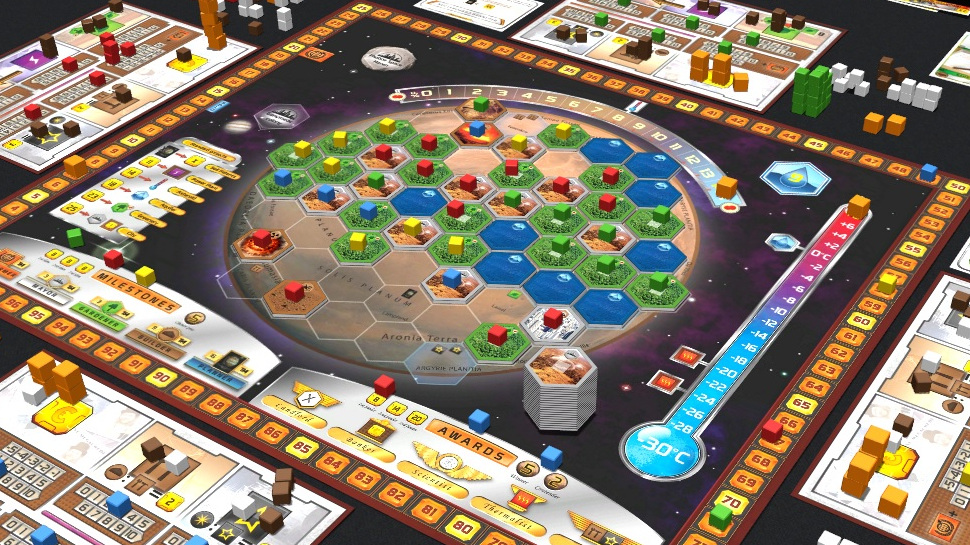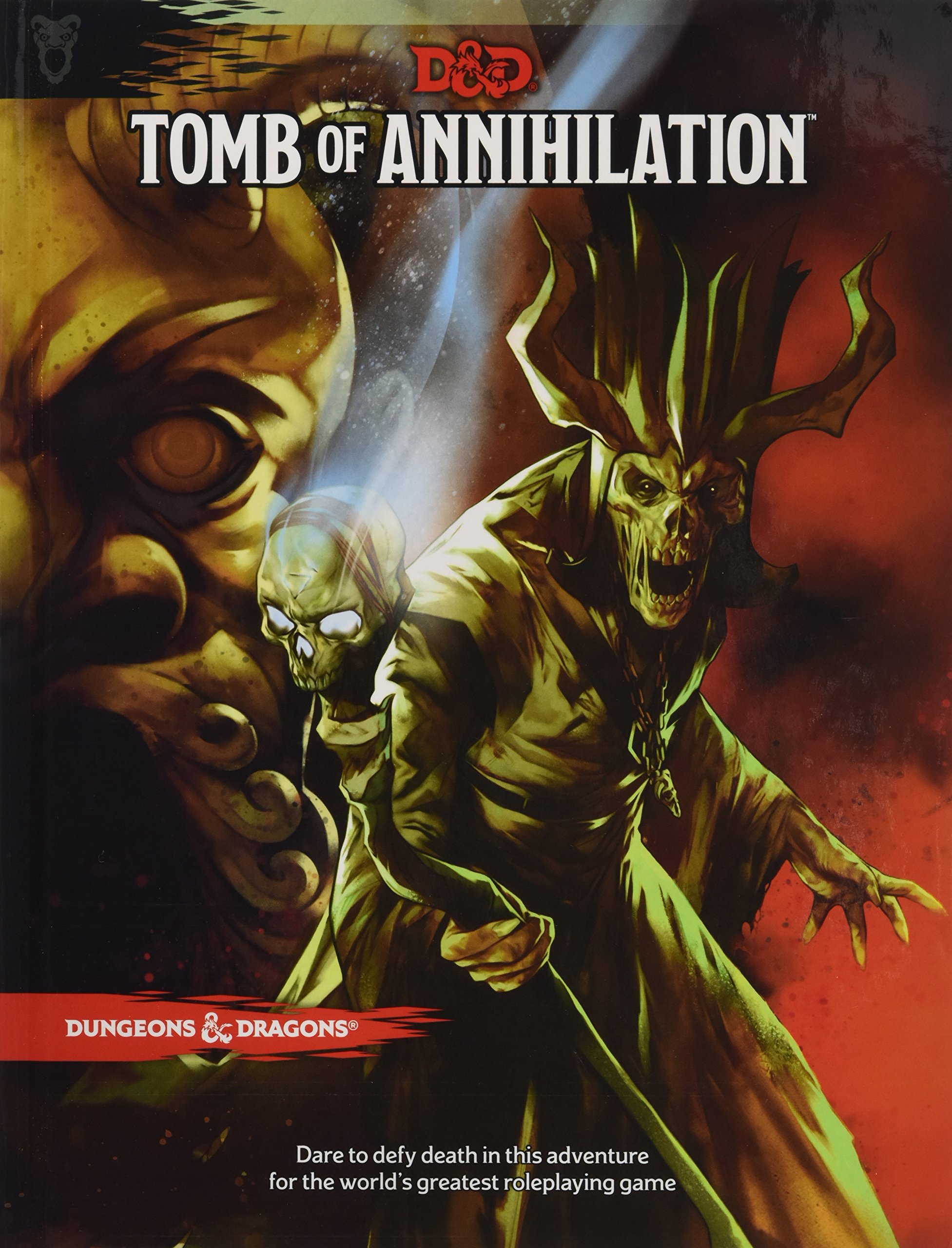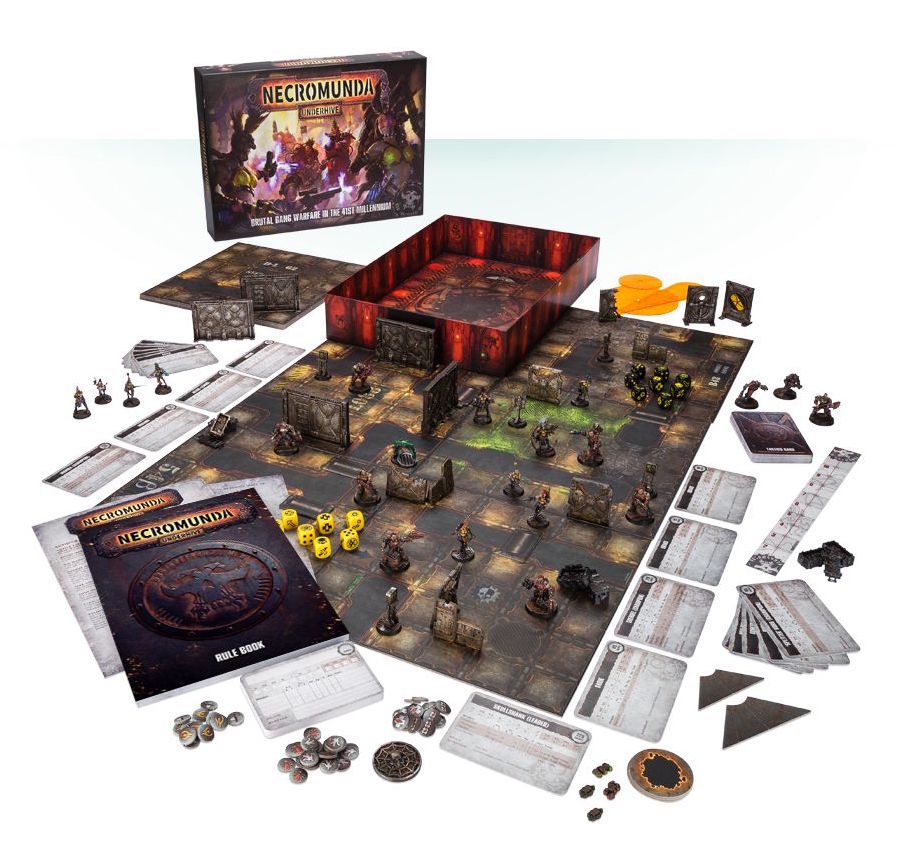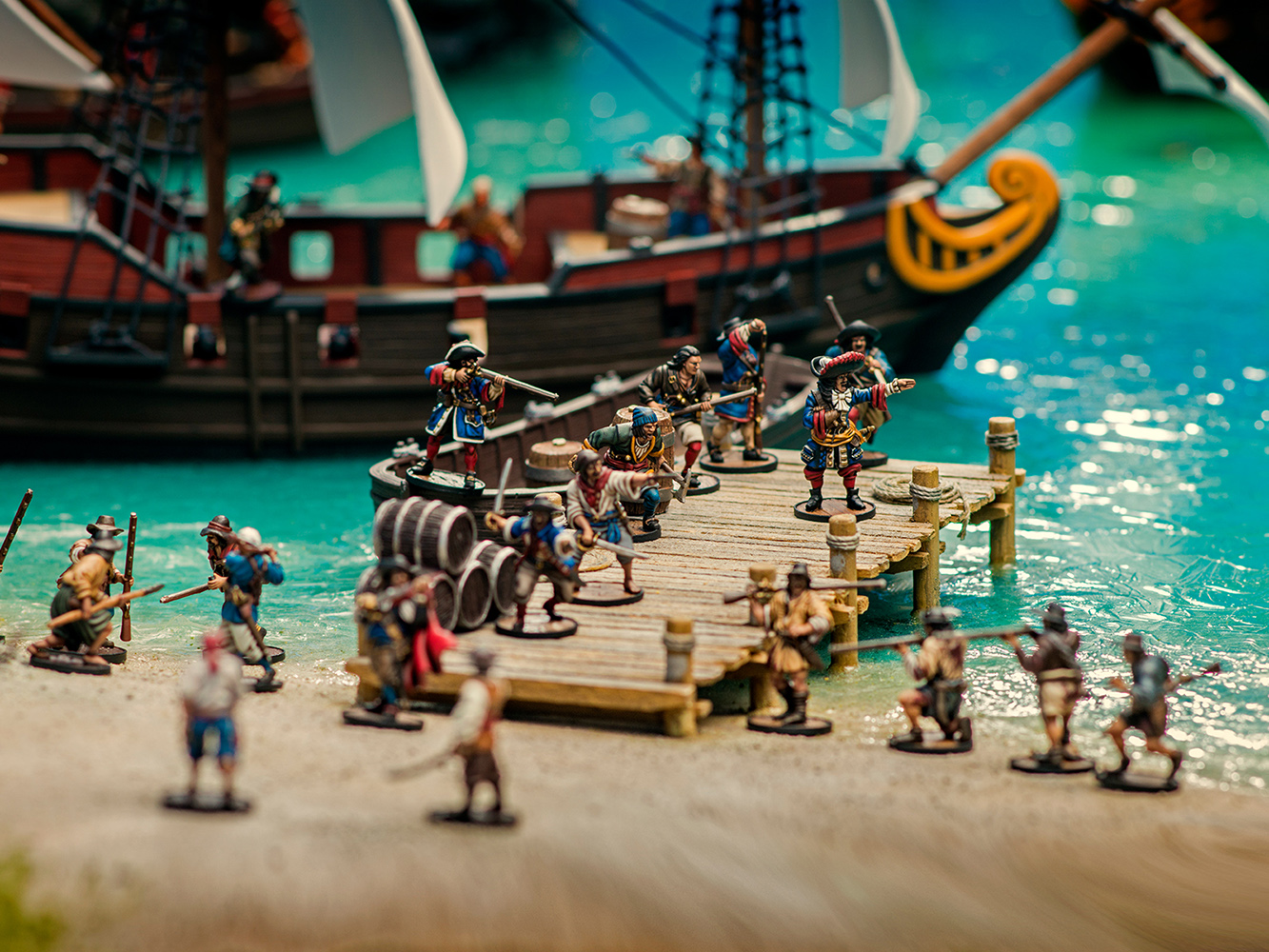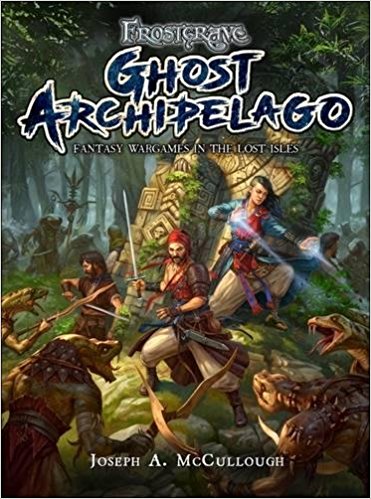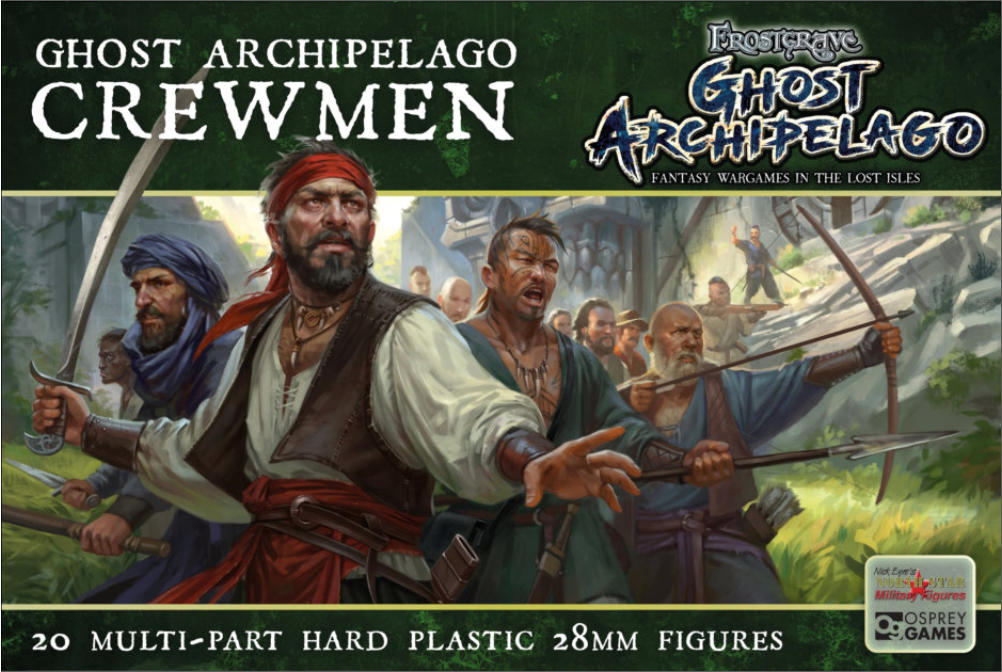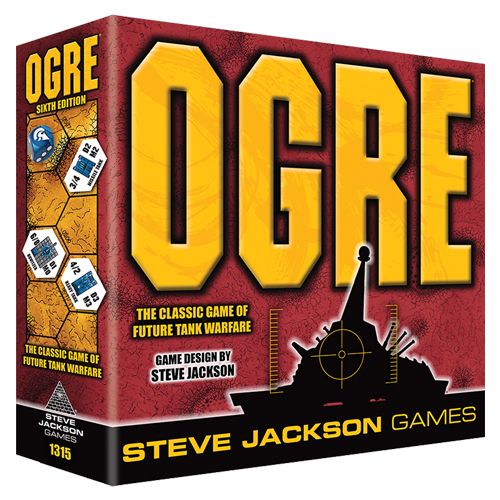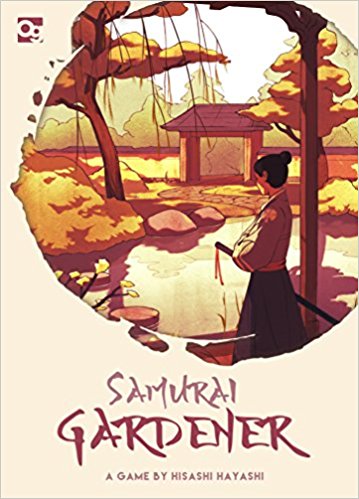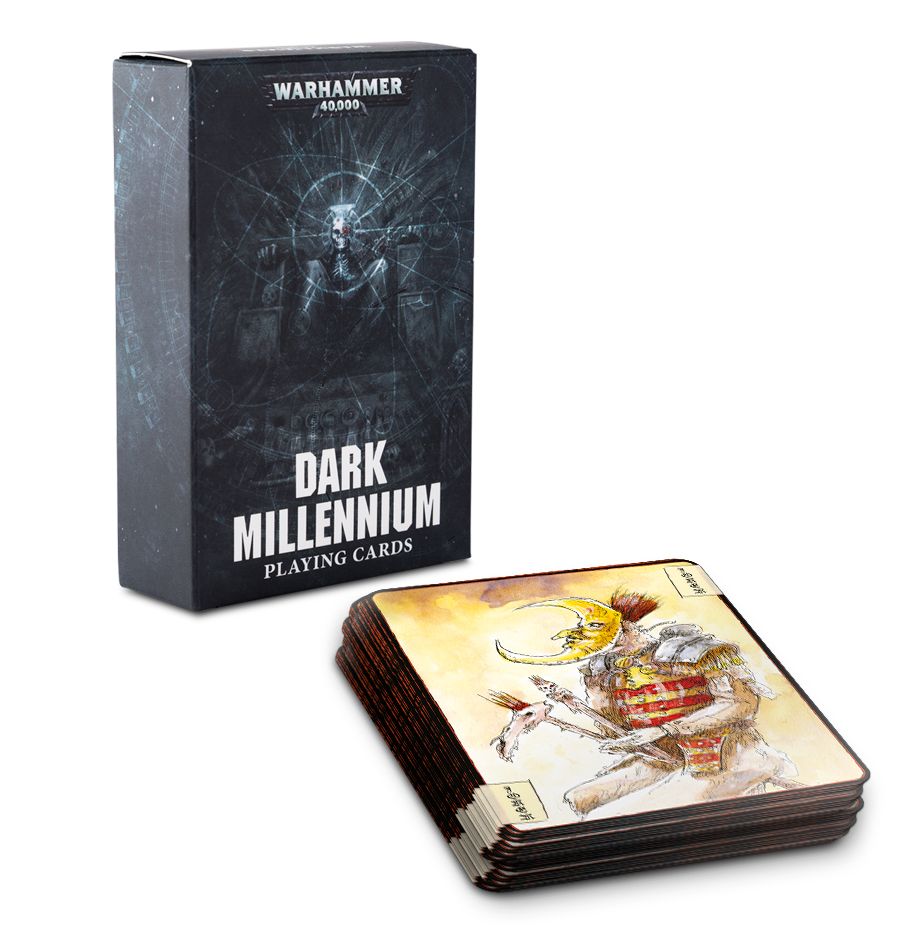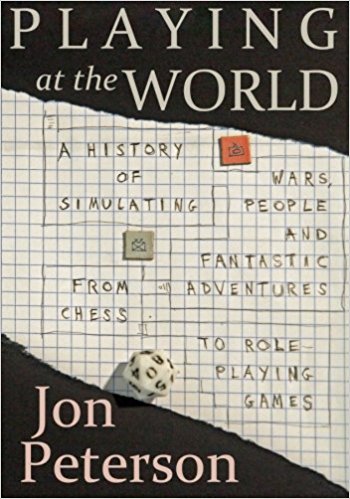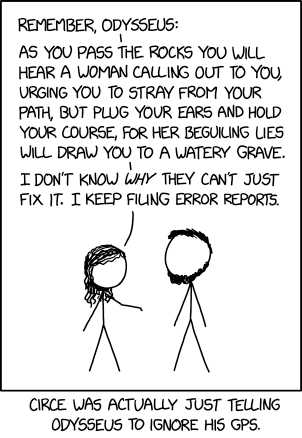
Lmcavadias
Shared posts
Borrowed Patronuses & A Critical Hit
How to Discuss a Topic with Someone Who Knows Nothing About the Topic
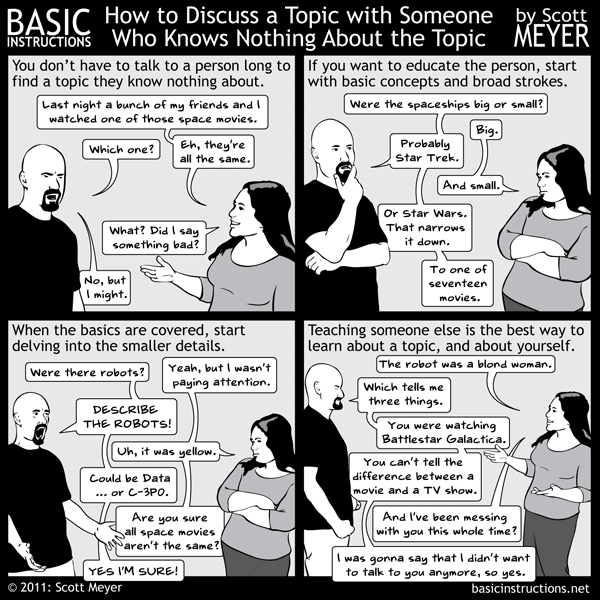
Wait a second. Murderous robots who look like attractive blonde women . . . THE CURRENT WESTWORLD IS A PREQUEL TO BATTLESTAR GALACTICA!!
This means the Yul Brynner Westworld was a prequel to the Lorne Greene Battlestar Galactica!
It really is true, “This has all happened before. This will all happen again.” That’s from Battlestar Galactica . . . the Edward James Olmos version. It was said by a Cylon that could see the future. It lived in a vat of goo. OH NO! MINORITY REPORT IS MIXED UP IN THIS TOO!
As always, thanks for using my Amazon Affiliate links (US, UK, Canada).
The 6 Settings to Change as Soon as You've Set Up Your New Phone

Congratulations! You’ve got yourself a shiny new smartphone, you’ve worked your way through the initial setup and login process, and you’re ready to start using it in earnest. Before you start Snapchatting and WhatsApping though, check out some of the default settings Android and iOS apply for you—because they might…
11 Free Steam Games Worth Playing
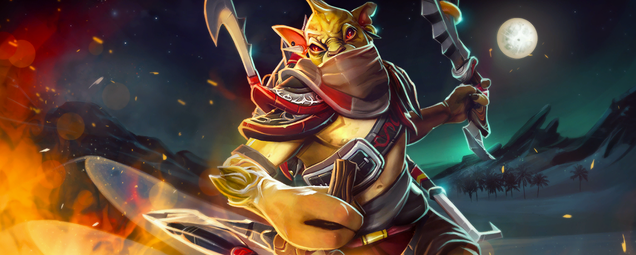
While Steam gets a lot of hype for discounted prices, you don’t actually have to spend any money to enjoy some of the best games the service has to offer. Over the years, Steam has accumulated a number of great games that are free-to-play, and I’m here to tell you which ones you should check out.
Star Toys: a line of Star Wars-themed sex toys

Australian bathing-suit-area-gadget vendor Geeky Sex Toys has launched Star Toys, a line of Star Wars themed sex-toys that include a Dark Side Bondage Kit, a Hand Solo fleshlight, the Darth Vibrator, Vibe Trooper and R2V2, a C3PO buttplug, and Light Saber dildos in Blue, Red and Green. (via Mitch Wagner) (more…)
Gift Guide for Tabletop Gamers 2017

With all of that in mind, here is my 2017 guide to tabletop wargames, RPGs, card games, board games, and more. This is not necessarily a tops list or an exhaustive one. These are mainly games that I played or acquired this year and that I personally recommend. If you have others, add them in Comments. (Where available, Amazon Affiliate links are used to help support Boing Boing.)
Board Games
Betrayal at Baldur’s Gate
D&D's Forgotten Realms setting, Baldur's Gate (immortalized in the late 90s video game of the same name), gets a chocolate-in-my-peanut-butter mash-up with the hugely successful horror game, Betrayal at House on the Hill, in Betrayal at Baldur’s Gate. In this cooperative tile-building game, you and your party try to remain alive while making your way through the dark passageways of this iconic D&D city. Collect too many bad Omens along the way and a Haunt happens, turning one party member against the others. Highly thematic and effectively creepy. Probably my favorite board game of the year. Comes with 6 really nice pre-painted minis.
Pandemic Legacy Season 2
The hugely popular Pandemic and Pandemic Legacy series gets a worthy sequel in Pandemic Legacy Season 2. 2-4 players cooperate to try to beat the reaper and save humanity from a virulent plague while the game itself tries to eat you. Good times! As with other Legacy games, outcomes from one session carry over to the next and the game is physically altered.
Escape from Colditz
The British classic from the early 70s (which, in its heyday, outsold Monopoly in the UK) is back with a really swanky, well-designed edition from Osprey Games. Co-designed by a British POW who actually escaped from the supposedly escape-proof Colditz Castle, the game has 1-5 players taking on the roles of POWs while one player plays the castle's German jailers. Colditz is medium-light in complexity and takes about 2 hours to complete.
Axis & Allies Anniversary Edition
The sweeping Milton Bradley/Avalon Hill wargame classic is back with a special edition celebrating the 50th anniversary of the Avalon Hill brand. This version (basically a slight tweak and fluff of the short-lived 2008 special edition) offers two scenarios, one for December 1941 and the 1942 scenario from the original A&A. Fight all of WWII on a huge 24" by 46" game board crawling with some 600 plastic miniatures. This edition adds Italian and Chinese forces (also found in the 2008 edition) and some of the rules have been streamlined.
The Lost Expedition
A fun and surprisingly knuckle-biting Euro-style game of jungle survival. Be prepared to die, a lot, as you and your party struggle against the Amazon in search of the lost city of El Dorado. The game is for 1-5 players and takes 30-60 minutes to play. There are solo, cooperative, and head-to-head modes. The whole thing comes to damp, itchy, and poisonous life via the very Tintin-esque illustrations of comic artist Garen Ewing.
Terraforming Mars
In this award-winning and hugely popular Euro game from Sweden, 1-5 players buy card-based resources in an attempt to create the necessary conditions for altering Mar's atmosphere and biosphere. The goal is to raise the temperature of the planet, generate an atmosphere, create oceans, and build cities. This is another game known for having a very playable and satisfying solo mode.
Roleplaying Games
Tomb of Annihilation
Welcome to the jungle, we got fun and games. Jungle and pirate games and settings were all the rage this year. Fifth edition D&D got in on the fun with the release of this big, beautiful tome. Tomb of Annihilation allows you to take your party of adventurers (levels 1-11) to Chult, the tropical fallen kingdom in the Forgotten Realms setting. As with the Curse of Strahd sourcebook released last year, I am already starting to hear excited reports from people who have made the journey to Chult.
Dungeon Fantasy
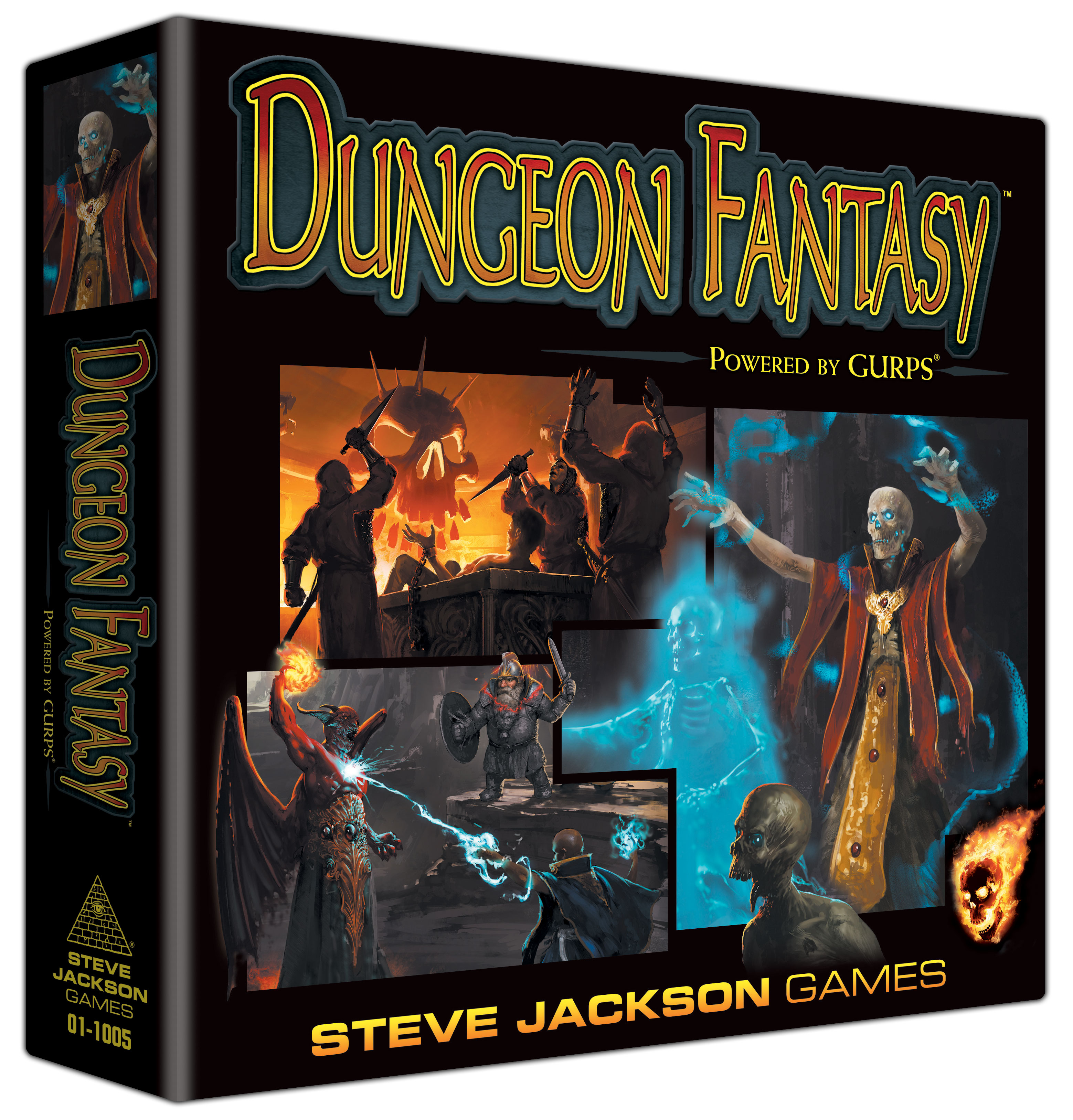 Dungeon Fantasy is a new boxed set compilation drawing from the Dungeon Fantasy RPG tomes that have been released over the years for the Steve Jackson Games' GURPS (Generic Universal Role Playing System) rule set. This set works as a stand-alone fantasy adventure RPG, but is fully compatible with GURPS 5th ed. In the box you get 5 full-color rule- and sourcebooks, maps, dice, and cardboard miniatures. With its streamlined rules and shake n' bake approach to getting stuck right in, this is a great entrée game for anyone looking to dip their toe into fantasy RPGing.
Dungeon Fantasy is a new boxed set compilation drawing from the Dungeon Fantasy RPG tomes that have been released over the years for the Steve Jackson Games' GURPS (Generic Universal Role Playing System) rule set. This set works as a stand-alone fantasy adventure RPG, but is fully compatible with GURPS 5th ed. In the box you get 5 full-color rule- and sourcebooks, maps, dice, and cardboard miniatures. With its streamlined rules and shake n' bake approach to getting stuck right in, this is a great entrée game for anyone looking to dip their toe into fantasy RPGing.
Empire of the Petal Throne: The World of Tékumel
Finally, the near impossible to find Empire of the Petal Throne, one of the ur-texts of RPGs, and the first world setting that TSR ever publishing, is back. This no-frills edition, which you can get in hardcover, softcover, and PDF formats, is the core Tékumel volume. All of the other iconic and coveted Tékumel books, including the Player's Handbook and the Tékumel Sourcebook, have also been re-released on DriveThruRPG by the Tékumel Foundation.Tabletop Miniature Games
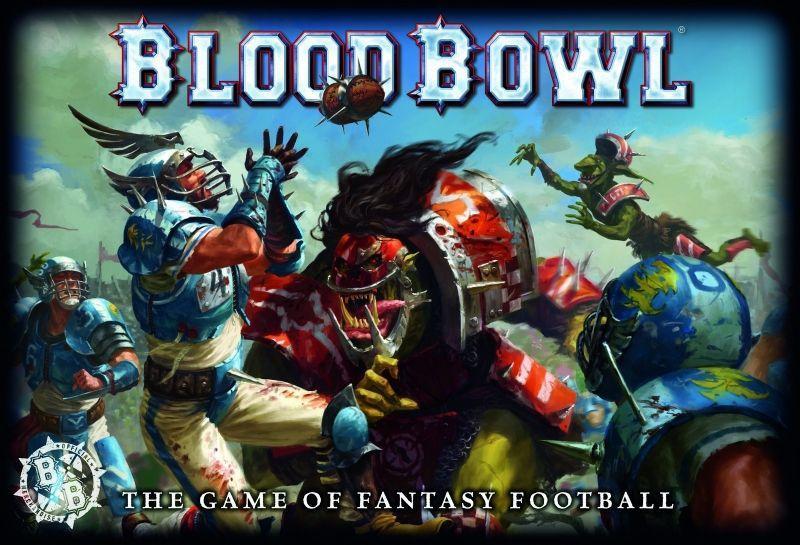
Blood Bowl
The late-80s tabletop classic (think Mad Max and Rollerball meet American football in Tolkien's Middle Earth) is back with a lovely new edition. This starter box includes Human and Orc teams with a growing number of additional teams available. This is one of Games Workshop's titles that has often been hailed as one of their highest achievements. With good reason. This game is ridiculous, goofy-good fun and is highly addictive.
Necromunda
Another Games Workshop classic returns, this one from the late 90s. Cyberpunky gangs fight each other over "archeo-tech" and other valuable loot in the industrial dungeons of a massive hive city in the far-future Warhammer 40,000 universe. Gorgeous new models with tons of customization options. This starter set contains two gangs, the all-female House Escher, and the genetically-enhanced beefcake of House Goliath. It's a kick-ass, empowered matriarchy vs. toxic masculinity. Place your bets!
Blood & Plunder
A 30mm light-historical skirmish game that takes place in a 17th century Caribbean during the pirate heyday. Includes clever rules for ship-to-ship, ship-to-land, and land combat and uses a unique game mechanic employing standard playing cards for determining initiative. Amazingly high-quality, old-school pewter-cast miniatures and resin-cast ships, all done in a very garage-kit operation.
Frostgrave: Ghost Archipelago
Working off of the phenomenal success of the Frostgrave skirmish wargame (my favorite game of the moment), creator Joseph McCullough and Osprey Games shine light in another corner of this compelling fantasy world with Ghost Archipelago, about a phantasmic tropical land with mysterious powers, lethal adversaries, and a whole new class of magic users and characters with special powers to explore it.
Frostgrave minis from North Star
North Star Military Figures makes a wonderful line of multi-part plastic minis for Frostgrave. The multiple heads, torsos, weapons, and other gubbins allow you to make a vast array of custom characters. Most everything is interchangeable. With five different Frostgrave miniatures boxed sets, the combinations of characters you can make is nearly endless.
OGRE
OGRE, the wargaming classic from the late 70s/early 80s (the one that began my obsession with tabletop wargaming), is back and it's more OGRE-ific than ever. This old-school map and counters game (here with added cardboard minis), features asymmetrical near-future warfare pitting puny humans and their tanks and hover-vehicles against a giant, crazed battleship-sized cybertank, the titular OGRE. For those that remember the 2012 Kickstarter campaign, where SJ Games raked in close to a million dollars, and produced a Designer's Edition of OGRE that was almost as huge and heavy as an OGRE itself, this is a more human-manageable version of that edition. An easy game to learn and play, but one with enough depth, re-playability, and thematic depth to keep you (OK, me) coming back again and again. Also, check out OGRE Objective 218, a card game set in the OGRE universe, with great art, that does an impressive job of capturing the feel of the tabletop game.
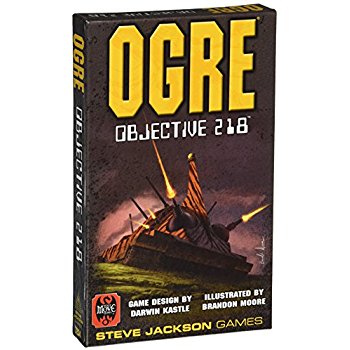
Card Games
Samurai Gardener
A lovely and simple Japanese tile-laying game designed by Hisashi Hayashi. You are a Samurai and master gardener trying to impress your shōgun by creating the most beautiful garden you can. The game is for 2-5 players and only takes around 15-20 minutes to play. This is one of those games that would make a great palate cleanser between larger games at a gaming night.
Netrunner Terminal Directive
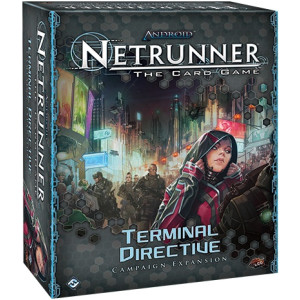 I was late to the party on Netrunner, Fantasy Flight Games' extremely immersive cyberpunk "living card game." I love Netrunner now and all of the expansion data packs and boxed expansion sets they've released for it. If you are also somewhat new to Netrunner, or want an excuse to get back into it, Terminal Directive is worth taking a look at. It is a unique narrative campaign system, with a murder mystery theme, within the Android Netrunner universe and the Netrunner card game. This immediately went on my Krampus gift list. (Also be on the lookout for the Android Netrunner: Revised Core Set, which will hopefully ship in time for Christmas.)
I was late to the party on Netrunner, Fantasy Flight Games' extremely immersive cyberpunk "living card game." I love Netrunner now and all of the expansion data packs and boxed expansion sets they've released for it. If you are also somewhat new to Netrunner, or want an excuse to get back into it, Terminal Directive is worth taking a look at. It is a unique narrative campaign system, with a murder mystery theme, within the Android Netrunner universe and the Netrunner card game. This immediately went on my Krampus gift list. (Also be on the lookout for the Android Netrunner: Revised Core Set, which will hopefully ship in time for Christmas.)
Dark Millennium Playing Cards
If there is one artist who has given the most color, shape, and atmosphere to the Warhammer 40,000 universe, it is John Blanche. His work has inspired the game's designers and miniature sculptures, the author's of the game's background, and it has graced the pages of the game's rulebooks, sourcebooks, and magazines. Now Blanche has created all new artwork for 52 conventional playing cards in a Dark Millennium-themed deck. At $12.50, these would make a great stocking stuffer for any fan of the 40K universe.
Gaming Tools, Supplies, and Misc.
Citadel Painting Handle
Look on Thingiverse and you will find a number of painting handles for holding gaming minis while you paint them. There are a number of commercial holders, too, some of them quite expensive. Most gamers just glue or poster-putty-tack their minis onto a wine cork for painting. But for only $8, this Citadel holder is a cheap and easy-to-use solution. You'd spend that much on time, filament, and wear and tear on your 3D printer. The handle is designed to easily grab and release 25mm, 32mm, and 40mm round bases, as well as hold 60x35mm ovals.
Green Stuff World Rolling Pins
These textured acrylic rolling pins are a game changer for any game hobbyists who make a lot of their own terrain. You can roll out stone walls, brick walls, cobblestones, industrial diamond plate, and other patterns with these pins. They are made to be rolled onto two-party epoxy putty (AKA green stuff), but you can also press these into foam material. No more carving individual stones in foam to create walls and streets!
Paint Agitator Balls
Here's a unique and thoughtful gift that your gamer recipient doesn't even know she needs. Add these 3/16" stainless steel balls to any pot of hobby paint and you have a better way to keep your paints fully mixed. As a bonus, the pot makes a satisfying tick-tick-tick sound as you shake it, like rattle can spray paint.
Playing at the World, by Jon Peterson
In the last few years, there have been a number of books about the origins of D&D and bios of Gary Gygax and Dave Arneson. This meticulously researched and constructed history of the modern tabletop gaming impulse in general, and D&D in specific, is my favorite. This would make a great, thoughtful gift to any deep gaming geek on your holiday list.You Know You're Kinky When ... (Definitely Not Safe for Work)
...you spend $400/month on clothespins and you own a dryer.
...you can't find women's clothing that fits your boyfriend.
...you own a shock collar, but not a dog.
...you get into position when your girlfriend picks up her hairbrush or your belt.
...you have a threesome with your girlfriend and her twin. How can you tell the difference? He has the mustache.
...your girlfriend has the key to your heart, and your chastity device.
...you get the red duct tape because it looks good over your mouth.
8 writers share their ideas for Star Trek spinoffs
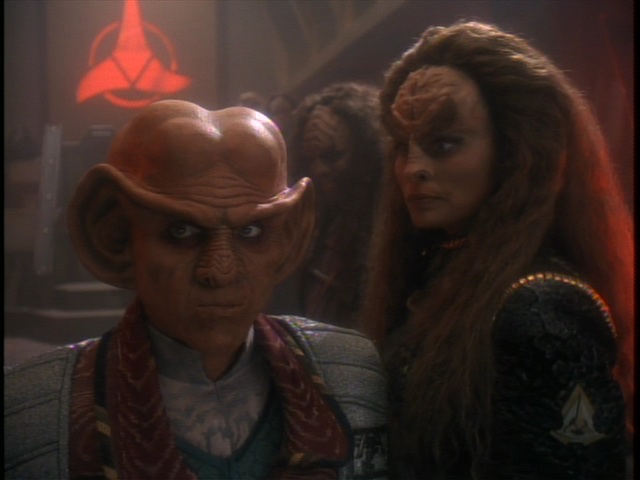
Star Trek has many spinoffs, but they all happen within a fairly shallow focal plane: consider how controversial it was to set DS9 on a space station instead of a starship, or how radical it seemed for Discovery to not star the ship's commanding officer. Tiffany Kelly got eight SF writers to cook up more intriguing adventures in America's favorite future.
I like the ideas from Rob Boffard, Annalee Newitz andd Charles Yu, who each want a look at invisible levels of Klingon and Federation society. Newitz wants to see Klingon scientists and workers navigating the military elite's endless honor games; Yu wants to make a hero of a green-visored Ferenghi number-crunching his way through the Federation finances, a moneyless socialist energy economy that must yet do business with a universe that runs on gold-pressed Latinum.
(Together, the eight proposals seem almost like a critique of Star Trek's practical limitations as television SF.)
Long, funny list of the many flaws in Blade Runner 2049

I enjoyed Blade Runner 2049, though I would have enjoyed it more if it was at least an hour shorter; Jamie Zawinski did not enjoy it for many inarguable reasons, ranging from plot holes ("Why is Leto's character blind? Dude you literally own an eyeball factory") to visual laziness ("Before [Las Vegas] was abandoned, all of its gaudy statuary had been replaced with gargantuan reproductions of the statues from The Korova Milk Bar from A Clockwork Orange. Really? That's all you got?") to all the scenes and scenarios lifted from better movies and made worse ("A love story between two people who are somewhere between 'poorly socialized' and 'not quite real'. Oh wait, that movie was called Her and it was excellent!"). (more…)
Sleeps With Monsters: The Weird West of Wynonna Earp

I didn’t know I needed a weird modern Western—complete with curses, demons, and complicated family dynamics—in my life. But apparently I didn’t know what I was missing! It turns out that this is exactly what I wanted, when it comes in the form of SEVEN24/IDW Entertainment’s Wynonna Earp, created by Emily Andras, based on the comic by Beau Smith, and starring Melanie Scrofano as the eponymous Wynonna.
I’d heard a great deal about Wynonna Earp—I’d first become aware of it through some entertaining episode recaps—so when I came across its first season on Netflix one recent Friday, it jumped to the head of the queue.
Then my girlfriend and I mainlined it over the next two days. It’s really satisfyingly entertaining television.
Wynonna’s the descendant of Wyatt Earp. Unfortunately, Wyatt Earp was cursed, and the curse is inherited by his descendants. The people that Wyatt killed come back to life when an Earp heir dies—and only Wyatt’s revolver Peacemaker, wielded by an Earp, can kill them properly again. The Earps call them “revenants,” and they’re pretty demonic.
Wynonna returns to her small rural hometown, Purgatory, after the death of her uncle Curtis. She doesn’t have fond memories: when she was twelve, her elder sister Willa was kidnapped when revenants attacked the Earp homestead, and Wynonna accidentally shot her father to death with Peacemaker when trying to save him. Her adolescence included involuntary psychiatric care, trouble, and drinking, and her relationship with law enforcement is strained to say the least. The whole town, it seems, either hates her or thinks she’s really, really weird.
Now she’s home, reconnecting with her younger sister Waverly (it seems the Earps have a W-thing for names, at least in this generation), being attacked by revenants, and being harassed by Marshal Xavier Dolls, who wants her to bring her demon-killing skills to join his “Black Badge” team.
Wynonna Earp has an excellent sense of humour. The batshit insanity of its worldbuilding would collapse in on itself were it not for the sense that the characters find it faintly ridiculous and arbitrary, too: Wynonna swigs whiskey from the bottle like a woman dying of thirst in the middle of a desert—or one who can’t stand to be sober while talking about demons, curses, and witches. Recruited for Dolls’ Marshal team, she clears a crowded club in pursuit of a revenant not by touting her law-enforcement status, but, when she grows frustrated, by firing a bullet into the ceiling and yelling, “Crazy woman with a gun!”
An immortal “Doc” Holliday also seems to view everything with a combination of jaded cynicism, frustrated impatience, and humour. All he wants is revenge for his immortality—a hundred years stuck down the bottom of a well might do that to a body—and to keep his hat.
To be fair, he has an excellent hat, though in the hat stakes, it might be an even tie between Doc and sheriff’s deputy Officer Nicole Haught, who rocks a cowboy hat and a shy grin as she flirts with a flustered Waverly. Their friendship slowly blossoms into something more, leading to one of the show’s funniest conversations: Nicole asking Waverly what is going on meaning, what the hell’s going on with the weird paranormal shit in this town, and Waverly understanding it as a question about whether or not Waverly is into Nicole, and the state of their friendship. (When Waverly says, “You’re a lesbian, not a unicorn!” to Nicole’s baffled face, I might have laughed out loud.)
What really works for me about Wynonna Earp are the relationships between the female characters. Wynonna and Waverly’s sibling relationship is based on love, but it’s strained sometimes by resentment and misunderstandings. Both Wynonna and Waverly have a different relationship with their aunt Gus, who raised Waverly—but who basically sent Wynonna away. Wynonna’s half-competitive professional relationship with Nicole. And then there’s Waverly’s relationship with her local friends, and with Nicole…
In the finale, a villain points a gun at Nicole and pulls the trigger. (Both my girlfriend and I exclaimed “Oh no!” in the same breath: we have seen this before.) But it turns out that there’s one queer woman on TV who knows when to wear a bulletproof vest!
When it comes to queer representation, Wynonna Earp‘s first season is a lot more inclusive, and a lot more sensitive and sensible than most other science fiction and fantasy television I’ve seen in the last few years. (Of course, as if to make up for that, it’s really rather white.)
This is a great, fun show. But alas! The first season ends on a cliffhanger, and the second season has yet to come to Ireland. DO NOT TELL ME WHAT HAPPENS NEXT.
I really want to find out on my own. Soon. Really soon.
Liz Bourke is a cranky queer person who reads books. She holds a Ph.D in Classics from Trinity College, Dublin. Her first book, Sleeping With Monsters, a collection of reviews and criticism, is out now from Aqueduct Press. Find her at her blog, where she’s been known to talk about even more books thanks to her Patreon supporters. Or find her at her Twitter. She supports the work of the Irish Refugee Council and the Abortion Rights Campaign.
Joy and Pun-ishment: Callahan’s Crosstime Saloon by Spider Robinson

In this bi-weekly series reviewing classic science fiction and fantasy books, Alan Brown looks at the front lines and frontiers of the field; books about soldiers and spacers, scientists and engineers, explorers and adventurers. Stories full of what Shakespeare used to refer to as “alarums and excursions”: battles, chases, clashes, and the stuff of excitement.
Not all bars are the same. Some cater to the elite, offering picturesque views and fancy cocktails. Some cater to the young, and are full of mirrors and flashing lights and pulsating music. Some cater to dockworkers and fishermen, looking to ease the pain of a hard work day with a stiff drink. Some will have a circle of musicians in the corner, lost in the music as they play their jigs and reels. And there are rumors that, in a nondescript corner of the suburban wilds of Long Island, there was once a magical bar called Callahan’s Place, where adventures were not just recounted—they were experienced. A bar where the unexpected was commonplace, the company was always good, the drinks were cheap, and most importantly, where the broken people of the world could gather and be made whole.
My father used to say that adventure was reading about another man’s problems in the comfort of your easy chair. I’m sure he was quoting someone, but he’s my dad, so he gets the credit. When I joined the Coast Guard, I found he had a point. I witnessed some amazing things, but those experiences, in addition to being exciting, were also accompanied by cold (to the point of hypothermia), injuries, mind-numbing boredom, confusion, nausea, fear, hunger, terrible coffee, and that excruciating pain of not being able to use the head until the end of a watch. I never wrote my experiences down for others to read, but found that they had transformed when I sat down, months and sometimes years later, in a bar with a drink in front of me, and started a tale with those old hallowed words, “This is no shit…” or the old reliable, “It was a dark and stormy night…” Whatever difficulties and discomfort I had experienced had faded in my memory, and all that was left was the excitement of the experience itself, distilled to its essence. An experience had become an adventure.
You might wonder why I chose to review a book about a bar in a column dedicated to the front lines and frontiers of SF adventure, but now you know. In my mind, there is no place more closely associated with adventure as a good bar with good company. And, in the case of a bar like Callahan’s Place, sometimes the adventure comes not just in tales, but in person.
About the Author

Photo by Greg McKinnon
Spider Robinson (and as far as I can determine, that is his legal name) was born in New York City in 1948. He sold his first SF story, a Callahan story, to Ben Bova at Analog in 1972. Bova’s mentoring of Spider is yet another example of why he should be ranked among the best editors in the field. In 1975, Spider married dancer and choreographer Jeanne Robinson, with whom he co-authored the acclaimed Stardance trilogy. In addition to his fiction, he reviewed books for both Galaxy and Analog, and wrote a column for Canadian newspaper The Globe and Mail.
Spider earned the John W. Campbell Award for Best New Writer, two Hugo Awards in the novella category (one shared with Jeanne Robinson), one Hugo Award for a Short Story, and one Nebula Award for a novella (also shared with Jeanne Robinson). Spider is best known for the Callahan series, which grew to three short story collections, two related novels about Callahan’s wife, and four novels after that.
He wrote a number of other novels, primarily set in the present or near future, and nearly all set on Earth. His first novel, Telempath, was wildly inventive, with enough twists and turns to fuel an entire writing career, not just a single book. The Stardance series was an uplifting and positive view of the idea of human transcendence. Robinson was selected to complete an unfinished novel by Robert Heinlein, a book titled Variable Star, the only writer I know of to be honored with such an assignment. Spider’s most recent book is Very Hard Choices, a follow-up to the book Very Bad Deaths, in which the protagonists use telepathy to battle a sinister government conspiracy. The last few years have been difficult, as he has lost both his wife and daughter to cancer, and suffered a heart attack himself.
Spider is empathic, a talented musician, and generous with fans, something I know from personal experience. My father and I spent an evening with him and a small group of fans at a Con somewhere along the line, singing Beatles songs and telling jokes and stories. Spending time with Robinson gives you a good idea of what the fictional Callahan’s Place would be like. If you ever get the chance to hear him read his own work, do so, as he ranks with Neil Gaiman as one of the best storytellers around. Spider will be a Guest of Honor at the 76th World Science Fiction Convention in 2018, a well-deserved recognition.
The World of Callahan’s Place

Callahan’s Place was identified simply by a hand-lettered sign, lit by a spotlight. It was somewhere off Route 25A, Suffolk County, Long Island, New York. Mike Callahan, the proprietor, is a big, redheaded Irishman. Originally, the clientele was charged a dollar a drink, with fifty cents returned if they did not break their glass by throwing it into the fireplace after a toast. The place was brightly lit, and comfortable. Monday was Fill-More singalong night. Tuesday was Punday Night. Wednesday was Tall Tale Night. There were dart championships, sometimes dancing, and other diversions.
Our viewpoint character throughout the series is Jake Stonebender, who came to the bar after fixing his own brakes to save money, only to lose his wife and child when they failed. Jake is a guitarist, and generally holds his own in the pun and storytelling competitions. The denizens of Callahan’s Place are a diverse and colorful bunch. The house musician is Fast Eddie Costigan, a piano player with an outstanding memory for the American songbook. Doc Webster is an old-fashioned doctor who still carries his black bag and makes house calls, and is a force to be reckoned with during wordplay. Other regulars included Slippery Joe Maser, a man with two wives, and Noah Gonzalez, a member of the county bomb squad.
Over the years, we learned that Callahan had a wife, Lady Sally, who ran a brothel. Later on, Callahan moved on to other endeavors and Jake took over the bar, which became known as Mary’s Place. Eventually, the gang ended up relocating south to Key West, where we are told they continue to operate a drinking establishment, simply called “The Place,” to this day.
Callahan’s Crosstime Saloon

The book, the first of the series, is a collection of short stories. In “The Guy With the Eyes,” the first story to appear in Analog, a young recovering heroin addict, Tommy Jansen, comes into the bar and receives support and encouragement from the regulars. Another customer, a large man with penetrating eyes, is inspired by what he has seen and admits that he is a robot sent by an alien race to destroy the world. He doesn’t want to do it, but is constrained by his programming. The gang, with the help of some clever wordplay, find a way around the problem, saving the series from a rather premature end. Like many other Analog readers, I fondly remember reading that story, which was so different than anything I had come across before.
“The Time Traveler” is the story of Reverend Thomas Hauptman, who comes in on Punday Night to rob the place. He has spent a number of years imprisoned by revolutionaries, lost his wife and his faith in the process, and has given up all hope of ever fitting into society. Without employing an SF gimmick of any type, the story does an excellent job illustrating the impact the passage of time can have on people. Hauptman finds himself comforted at Callahan’s Place, and ends up taking a bartending job. When the story appeared in Analog, there were a few complaints that it wasn’t science-related enough, but by that time, Spider’s wit and the quality of his writing had won over the majority of the magazine’s readers.
“The Centipede’s Dilemma” presents the gang with a problem. What you do when a mean-tempered man with telekinetic powers wants to interfere with the Third Annual Darts Championship of the Universe?
“Two Heads are Better Than One” brings Jim MacDonald into the bar on Tall Tale Night, in excruciating pain. His brother Paul developed telepathic powers, and ended up in an institution, overwhelmed by what he experienced. Now Jim is developing those same powers, and doesn’t know how to cope. Not only does this true story beat everything else on Tall Tale Night, but the gang is able to help find a solution to the brothers’ dilemma.
“The Law of Conservation of Pain” brings a real time traveler into the bar. He is a man on a mission. One of the most powerful singers of his time (a few decades in the future) is a woman whose career was shaped by her pain after being viciously attacked by a dirty cop. The time traveler has come back to kill the corrupt officer before he can hurt her. His plan is disrupted when his brother also arrives from the future, intent on stopping him. Can they prevent a heinous attack by committing a crime themselves? And should they? What will result from their intervention? Would the artist still be the same without undergoing the same life experiences? This story gets to the emotional heart of the entire Callahan series, examining how pain shapes our lives, how to live with it, and how to mitigate it.
“Just Dessert” is a short-short which shows how the gang deals with a pair of practical jokers, finding a way to hoist them on their own petard.
In “A Voice is Heard in Ramah…” a woman walks into Callahan’s Place on Punday night, when the topic is science fiction. That wouldn’t be unusual in this day and age, but back in the last century, bars like Callahan’s were often all-male establishments. She tells a joke about Middle East conflict that seems destined to win the pun competition, but is reminded that her story doesn’t fit the night’s theme. Until she reminds them that her story is indeed a tale of “Zion’s friction,” one of the most egregious puns in a series full of them. But like many people who come to the bar, Rachel has a problem. She was born in 1741, and seems to be cursed to watch all her children die before they can have children themselves. While long-lived, she is not immortal, and she desperately wants to live on through a family. Once again, the gang puts their heads together to help someone in need.
“Unnatural Causes” brings yet another alien creature into the bar. It’s Halloween, so he doesn’t even need to wear a disguise. Having been monitoring Callahan’s Place, and hearing how the folks in the bar helped a Vietnam vet named Tony, he wants absolution for what he and his race have done…which turns out to be manipulating human history to create a population explosion that will allow the aliens to feed on humanity, using them as livestock. Spider does a pretty compelling and chilling job of convincing the reader that human history is just a bit too bizarre to have happened simply by chance. But the alien finds that absolution requires something from both parties involved. And once again, the Callahan gang are called upon to save the world.
The final story in the collection is “The Wonderful Conspiracy.” On a New Year’s Eve, a small group of regulars gather for some introspective conversation, and Jake discovers that this unique establishment is even more unique than he ever imagined.
Final Thoughts
I can’t recommend this collection enough. It has wit, whimsy, and passion; it stretches not only your mind, but your heart. I myself prefer the shorter Callahan works to the novels, because the setting lends itself so well to the short form, but every book in the series has its own merits, and it is always good to get back together with the old gang. I defy anyone to read these books without identifying with the characters, and wishing that you could join them to lift a pint, or whatever drink you might choose. Spider Robinson is a treasure, and you can give no better gift to a friend than sharing his work with them.
And now I turn the floor over to you. What is your favorite Callahan story? And feel free to discuss any of Spider’s work that you may have enjoyed.
And in honor of Spider and his career, in addition to discussion of his work, I would like to open the floor for jokes and puns. We can’t lift a pint to the man on the internet, but we can engage in wordplay. You can share a favorite joke from Spider’s work, or offer up something of your own. To start, I will offer a “That’s Amore” pun, a genre Spider played with in one of his works. You take the old standard, “When the moon hits your eye, like a big pizza pie, that’s amore,” and come up with a rhyming variation on the theme. So here’s one of mine: “When she studies past dark, for another high mark, that’s one more A.”
Alan Brown has been a science fiction fan for over five decades, especially fiction that deals with science, military matters, exploration and adventure.
An interactive to explain histograms, for normal people
Histograms require some statistical knowledge to grasp, and without the tidbits, the distribution chart looks like any other bar chart. So much more though. They can show a lot about your data, and statisticians start nearly every analysis with at least one. Aran Lunzer and Amelia McNamara provide a visual essay to explain how they work, so that you too can reap the rewards.
Tags: distribution, histogram
Study finds that hurricanes with female names kill more because they aren't taken seriously (Old news)

The Washington Post's Jason Samenow reports that "people don’t take hurricanes as seriously if they have a feminine name and the consequences are deadly."
The conclusion is that of a wide-ranging study, Female hurricanes are deadlier than male hurricanes, which found that the death toll nearly triples when a severe hurricane is given a feminine name.
Abstract
Do people judge hurricane risks in the context of gender-based expectations? We use more than six decades of death rates from US hurricanes to show that feminine-named hurricanes cause significantly more deaths than do masculine-named hurricanes. Laboratory experiments indicate that this is because hurricane names lead to gender-based expectations about severity and this, in turn, guides respondents’ preparedness to take protective action. This finding indicates an unfortunate and unintended consequence of the gendered naming of hurricanes, with important implications for policymakers, media practitioners, and the general public concerning hurricane communication and preparedness.
The study was formulated to track individual willingness to seek shelter. In other words, sexism is what's killing them, not the storm. The death toll since 1950: 50 deaths from female storms compared to 23 from male storms.
Meteorologists seem unimpressed: "I am not ready to change the naming system based on one study," the WaPo quotes ones.
UPDATE: Sorry about the oldnews: turns out this is three years old and has been widely contested.
Green Sky at Night, Hacker’s Delight: The Function of Tropes in The Laundry Files

The Atrocity Archives was initially published in 2004, meaning Charles Stross’s Laundry Files series has been going strong for thirteen years. Currently consisting of eight novels and a handful of spinoff novellas and short stories, the series has maintained a freshness that is often lacking in long-running properties—and that is largely due to Stross’s tongue-in-cheek critical appropriation of common genre tropes as fodder for the novels.
Speculative fiction is without fail a referential genre: concerned with the past and future, of course, but also with the sly nudge and wink of one “insider” to another. That tendency is regularly uncritical or self-involved, but with his deliberate, sometimes-savage usage of tropes in the Laundry Files, Stross manipulates and expands the function of the intertextual reference for an action oriented series. The result is a delightful medley of clever commentary and engaging plot that never fails to keep me interested on all fronts.
The two genres that most inform the Laundry Files novels are, rather obviously, Lovecraftian cosmic horror and the spy thriller. Stross takes his appreciation for these genres, as well as his criticisms, and embeds them as the skeleton of the story. Without these copious intertexts, the novels themselves could not exist. Despite this reliance, however, they also stand solid on their own. Stross rises past the nudge-and-wink school of reference—which expects an audience to appreciate a work solely based on knowledge/quoting of past material—and creates something unique in the process. These are “Lovecraftian spy thrillers,” but they’re also aggressively contemporary treatises that stand against nihilism and in support of communal resistance, support, and human will.
There’s a lot going on here, to be blunt. It’s not just fun games with text—though as a critic, I’m a sucker for that regardless—it’s fun games with text that have something to say. The reader can get their kicks from the intellectual tease of references and commentary on tropes while simultaneously engaging with a socially conscious universe and a fast-paced, dangerous tangle of intrigue and action.
This complexity comes across most via two forms of intertextual play that range over the course of the series: pastiche and reinterpretation. Stross has been quite direct about the usage of pastiche in the first four novels in interviews and discussions, going so far as to note the influences present in each text. The Atrocity Archives is an homage to Len Deighton; The Jennifer Morgue riffs on Ian Flemming’s Bond novels; The Fuller Memorandum is cousin to Anthony Price’s spy fiction; The Apocalypse Codex remixes the style of Peter O’Donnell. The use of textual pastiche—the sly quoting and occasional send-up of styles, structures, and motifs—gives each of the first four novels a specific and individual feel. Even if one isn’t familiar with the source text Stross is referencing, the sense of play and conversation within genre is hard to miss.

It’s also the reason, after the series settled four books in, that the use of pastiche stopped functioning as-needed for the development of the characters. After the increasingly grim occurrences of the first four books, the goofy, hapless Bob Howard of The Atrocity Archives is no longer the Bob Howard of the text. The events of his narrative have changed him and the narrative itself has become more serious as well. To continue with pastiche as the primary driver of the series would have been to sacrifice its increasing emotional depth for the sake of play and, luckily, Stross doesn’t do so.
Instead, he turns with more intention to the second form of reference (and deconstruction) in the series: self-aware, critical reinterpretation of familiar genre tropes that, at the same time, has a hell of a lot of fun employing those tropes in an honest fashion. It’s a delicate balancing act, turning a trope on its head without losing the sense of affection that drives the whole project in the first place. Stross does this with thematic structures, such as the gendered expectations of his source materials from Lovecraft to Flemming. He also does it with common figures (vampires in The Rhesus Chart, superheroes in The Annihilation Score, elves in The Nightmare Stacks) or plots (the space Nazis in The Atrocity Archives, or the espionage thriller backbone of The Delirium Brief).
The thematic arguments present in these books are something I have discussed in several past reviews; suffice to say, I appreciate Stross’s efforts in taking a source material with sexist and racist implications as his jumping-off point and making a concentrated effort to revise and correct those tendencies (often explicitly). Frankly, it’s just pleasurable to read books with the spookiness of Lovecraft and the intrigue of a spy thriller that are aware of and commenting on the flaws present in those genres. It’s a breath of fresh air. As a direct example, one of the books in the series, The Annihilation Score, is actually narrated by Mo O’Brien. Bob is her husband, so we’ve encountered her quite a bit through the previous novels, but she shines in her stand-alone with a thoughtful and nuanced portrayal of a woman attempting to navigate the same world we’ve seen to date only through the point of view of a man.
The concern with constructing a thematic argument carries over, naturally, into Stross’s tackling of oft-reused genre figures—vampires, elves, and fish-people, for example—and common plots. In The Annihilation Score, Stross acknowledges the experience of middle-age for women in a sexist culture: Mo develops a superpower, and it’s to amplify the way that people ignore her as she has passed the age of youthful beauty that our culture worships to the exclusion of the majority of women. The trope itself—superpowers!—doubles as part of the thematic argument. This occurs time and time again in the course of the series: when it comes to plot, for example in The Jennifer Morgue, Bob believes he is the James Bond figure for a long portion of the text; however, it turns out that he’s just the window dressing and a woman is the espionage specialist. This reversal turns the expected plot on its head, and in doing so, comments on the expectations of the spy fiction genre when it comes to gender.

The application of hard science to the ephemeral fantastic is another go-to method in Stross’s deconstruction of these genre tropes. It also allows the justification, in-universe, to bring all or any of the creatures he chooses onto the field. After all, if myths are actually quite terribly real and informed by actual science, why not write in a monstrous version of the “unicorn” as the truth behind the stories? This application of science to the fantastic has the powerful effect of allowing Stross to introduce the trope he’s going to deconstruct while simultaneously giving him the narrative tools to do so. It’s even possible to deliver the commentary directly through a character’s observation, as happens quite a bit in The Rhesus Chart, given that vampires have themselves enacted magic to make people believe they’re not real within the Laundry. The reinterpretation itself is therefore both a deconstruction and an argument, while also being a fun new take on a familiar figure.
Overall, the sense of humor in these novels is dependent on the use of tropes—but so, frequently, is the sense of horror. While someone unfamiliar with a single one of the references or materials Stross uses throughout the series would still be able to take pleasure in the plot and characters, for a long-time reader of genre fiction, these books are a twofold pleasure. They’re damn good on their own, but they also contain a crunchy, clever, constant stream of commentary on the genre itself—one that both welcomes the insider to share in the nudging, but also pokes at their accepted ideas and concepts in the same breath.
The deeply self-aware nature of these novels contributes a great deal to their realism, their approachability, and their emotional effect on the reader once the humor disappears and it’s all bleak truth as far as the mind can perceive. Plus, if you’re a nerd for books and texts and prose-as-a-game, you’re going to have a fantastic time picking up all of Stross’s references and criticisms of his material. It’s one of the major factors that keeps bringing me to this series over and over again, for sure.
Books 1-7 of the Laundry Files are published by Ace Books.
Book 8, The Delirium Brief, is available July 11th from Tor.com Publishing.
“Equoid,” a novella set in the Laundry Files universe, is published by Tor.com.
Brit Mandelo is a writer, critic, and editor whose primary fields of interest are speculative fiction and queer literature, especially when the two coincide. They have two books out, Beyond Binary: Genderqueer and Sexually Fluid Speculative Fiction and We Wuz Pushed: On Joanna Russ and Radical Truth-telling, and in the past have edited for publications like Strange Horizons Magazine. Other work has been featured in magazines such as Stone Telling, Clarkesworld, Apex, and Ideomancer.
Make board game night a brain buster with this puzzle-based board game
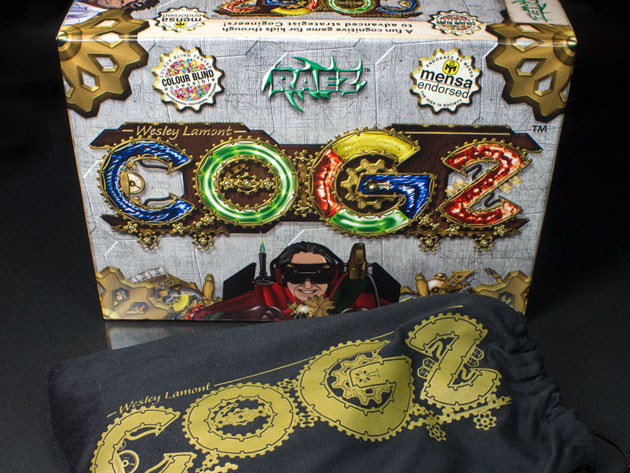
COGZ is a game where up to six players compete to see who can fix a mad scientist’s color-coded machine, and it’s currently available in the Boing Boing Store.
In this Mensa-endorsed tabletop game, players take turns laying gear tiles to connect like-colored segments. Points are scored when complex paths are finished, but your unfinished arrangements are constantly vulnerable to sabotage by your opponents. It’s great for all ages, but still takes plenty of strategy to master. COGZ rounds typically clock in under 30 minutes, and the game is fully accessible for colorblind players.
Usually $42, you can get the COGZ board game here for just $33.99.
If JG Ballard designed an earwax removal tool kit...

You Crocodile Dundee’d Them
(It’s the day before Christmas and we’re packed with people picking up their orders. I’m helping a customer when my coworker helps the next person in line.)
Customer: *while pulling out a knife* “Give me all your money! NOW!”
Coworker: *panics*
Me: *grabbing the biggest knife on the counter* “I’m sorry, what did you say, [Customer]?
(The customer, a former classmate of mine who was on drugs, ran out of the door after seeing me with that knife. The customers didn’t have a clue what was happening.)
The post You Crocodile Dundee’d Them appeared first on Funny & True Stories - Not Always Right.
With Waves Of Rainbows And Sprays Of Glitter
(I am swimming with a few friends on a hot day. A ball splashes next to me and I see a woman swimming up. I hold onto it until she gets to me. I am male.)
Me: “Sorry, but balls aren’t allowed in the water on this part of the beach. You can use them on the sand though.”
Woman: *snide* “And how would you know!”
Me: “My husband is a lifeguard on duty. I know a lot of the rules.”
(Her eyes widen and she looks me up and down before turning and swimming away.)
Woman: “Kids, get out of water! Quick!”
(Her children protest.)
Woman: “There’s a [slur]! It’s in the water. It’ll turn the whole ocean gay!” *turns back* It’s already happening!”
(My friends and I watch as three children and the mother sprint out of the water and into their car. They’re still wet as they drive off.)
Friend #1: “That was really weird.”
Me: “What did she mean, ‘It’s already happening?’”
Friend #2: “Oh, [Friend #3] and I decided to start snogging when we realised where it was headed.”
The post With Waves Of Rainbows And Sprays Of Glitter appeared first on Funny & True Stories - Not Always Right.
Speaking Up For Technology
(I’ve had this professor for multiple classes, and at the beginning of the year in every class he says some variation of this:)
Professor: “My hearing is going. Consider this: a hearing aid is $5,000, but speaking up is free.”
(This semester, he’s on sabbatical, but substitutes for one of my classes one day, and this happens at the beginning of class:)
Professor: *talks to a student in the back* “[Student #1], say something.”
Student #1: “Uh… something?”
Professor: *smiles and nods* “[Student #2], you say something.”
Student #2: “Um… hello?”
Professor: “Good. [Student #3]?”
Student #3: “Hi there?”
Professor: “Hi there. So, it turns out, for $5,000, you can hear people.”
(Later, while we were having small group discussion, he came over to me and showed me how he can turn up and down the volume for his hearing aid through his phone. At least he seemed to be enjoying his new hearing aid!)
The post Speaking Up For Technology appeared first on Funny & Interesting Student, Teacher, Parent, & Staff School Stories - Not Always Learning.
Potty Training For Your Birthday
(Shortly after I turn two, my mother is trying to get me potty trained. I am not enthusiastic about the process. My mom is tired of dealing with my attitude, and is also pregnant with my brothers at the time.)
Me: “Mom! No! Diaper easier!”
Mom: “Well, all right. But you aren’t allowed to turn three until you learn how to use the potty, so you won’t get another birthday.”
Me: *eyes wide* “…oh.”
(I got it down within a month.)
The post Potty Training For Your Birthday appeared first on Funny & Unusual Family Stories - Not Always Related.
Damage

In the extremities of war, we may know what we’ve been, but not what we will become. “Damage” is a tale of desperate times, desperate measures, and the inner life of a fighter spacecraft.
Originally published in January 2015, this short story was acquired and edited for Tor.com by Senior Editor Patrick Nielsen Hayden.
I never had a name.
My designation was JB6847½, and Specialist Toman called me “Scraps.” But Commander Ziegler—dear Commander Ziegler, primary of my orbit and engine of my trajectory—never addressed me by any name, only delivering orders in that crisp magnificent tenor of his, and so I did not consider myself to have one.
That designation, with the anomalous one-half symbol, was a bit of black humor on Specialist Toman’s part. It was the arithmetic average of NA6621 and FC7074, the two wrecked craft which had been salvaged and cobbled together to create me. “There wasn’t enough left of either spaceframe for any kind of paperwork continuity,” she had told me not long after I came to consciousness, three weeks earlier, “so I figured I’d give you a new number. Not that anyone cares much about paperwork these days.”
I remembered their deaths. I remembered dying. Twice.
NA6621, “Early Girl,” was a Pelican-class fighter-bomber who had suffered catastrophic drive failure on a supply run to Ceres. As she’d been making a tight turn, evading fire from the Earth Force blockade fleet on the return leg, her central fuel line had ruptured, spewing flaming hydrazine down the length of her spaceframe, killing her pilot and damaging her computing core. She’d drifted, semiconscious and in pain, for weeks before coming in range of Vanguard Station’s salvage craft. That had been long before the current standoff, of course, when we’d still been sending salvage craft out. When we’d had salvage craft to send out. Early Girl’s dead wreckage had lain at the back of the hangar for months until it was needed.
The death of FC7074, “Valkyrie,” an Osprey-class fighter, had been quicker but more brutal—she’d been blown out of space by a Woomera missile in a dogfight with two Earth Force fighters. The last memory I had from her was a horrific bang, a burning tearing sensation ripping from her aft weapons bay to her cockpit, and the very different pain of her pilot ejecting. A pain both physical and emotional, because she knew that even if he survived she could no longer protect him.
He hadn’t made it.
But his loss, though a tragedy, was no sadder to me than any of the thousands of other deaths Earth had inflicted on the Free Belt—Valkyrie’s love for her pilot was not one of the things that had survived her death to be incorporated into my programming. Only Commander Ziegler mattered. My love, my light, my reason to live.
He came to me then, striding from the ready room with brisk confidence, accepting as his due a hand up into my cockpit from the tech. But as his suit connected with my systems I tasted fatigue and stimulants in his exhalations.
This would be our fifth sortie today. My pilot had slept only three hours in the past twenty-four.
How long could this go on? Not even the finest combat pilot in the entire solar system—and when he said that, as he often did, it was no mere boast—could run at this pace indefinitely.
I knew how it felt to die—the pain, the despair, the loss. I did not want to suffer that agony again. And with the war going so badly for the Free Belt, if I were to be destroyed in this battle I would surely never be rebuilt.
But Commander Ziegler didn’t like it if I expressed reluctance, or commented upon his performance or condition in any way that could be considered negative, so I said only “Refueling and resupply complete, sir. All systems nominal.”
In reply I received only a grunt as the safety straps tightened across his shoulders, followed by the firm grip of his hands upon my yoke. “Clear hangar for launch.”
Techs and mechs scattered away from my skids. In moments the hangar was clear and the great pumps began to beat, drawing away the precious air—a howling rush of wind into gratings, quickly fading to silence. And then the sortie doors pivoted open beneath me, the umbilicals detached, and the clamps released.
I fell from the warmth and light of the hangar into the black silent chill of space, plummeting toward the teeming, rotating stars.
Far too many of those stars were large, and bright, and moving. The Earth Force fleet had nearly englobed our station, and even as we fell away from Vanguard’s great wheel three of them ignited engines and began moving to intercept. Crocodile-class fighters. Vanguard’s defensive systems were not yet so exhausted that they could approach the station with impunity, but they would not pass up an opportunity to engage a lone fighter-bomber such as myself.
Our orders for this sortie were to engage the enemy and destroy as many of their resources—ships, personnel, and materiel—as possible. But now, as on so many other occasions, the enemy was bringing the fight to us.
I extended my senses toward the Crocodiles, and saw that they were armed with Woomera missiles like the one that had killed Valkyrie. A full rack of eight on each craft. I reported this intelligence to my commander. “Don’t bother me with trivia,” he said. “Deploy chaff when they get in range.”
“Yes, sir.” Valkyrie had used chaff, of course. Memories of fear and pain and tearing metal filled my mind; I pushed them away. My pilot’s talents, my speed and skill, and my enduring love for him would keep us safe. They would have to, or the Free Belt would fall.
We lit engines and raced to meet the enemy on our own terms.
Tensors and coordinates and arcs of potential traced bright lines across my mind—predictions of our path and our enemies’, a complex dance of physics, engineering, and psychology. I shared a portion of those predictions with my pilot on his cockpit display. He nudged my yoke and our course shifted.
In combat we were one entity—mind, thrusters, hands, missiles—mechanical and biological systems meshed—each anticipating the other’s actions and compensating for the other’s weaknesses. Together, I told myself, we were unbeatable.
But I could not forget the searing pain of flaming hydrazine.
Missiles streaked toward us, radar pings and electromagnetic attacks probing ahead, the Crocodiles with their delicate human pilots lagging behind. We jinked and swerved, spewing chaff and noise to throw them off our scent, sending the pursuing missiles spiraling off into the black or, even better, sailing back toward those who had launched them, only to self-destruct in a bright silent flare of wasted violence.
It was at times like these that I loved my pilot most fiercely. Commander Ziegler was the finest pilot in the Free Belt, the finest pilot anywhere. He had never been defeated in combat.
Whereas I—I was a frankenship, a stitched-together flying wreck, a compendium of agony and defeat and death unworthy of so fine a pilot. No wonder he could spare no soothing words for me, nor had adorned my hull with any nose art.
No! Those other ships, those salvaged wrecks whose memories I carried—they were not me. I was better than they, I told myself, more resilient. I would learn from their mistakes. I would earn my pilot’s love.
We spun end-for-end and accelerated hard, directly toward the oncoming missiles. Swerved between them, spraying countermeasures, leaving them scrambling to follow. Two of them collided and detonated, peppering my hull with fragments. Yet we survived, and more—our radical, desperate move put us in position to hammer the Crocodiles with missiles and particle beams. One, then another burst and flared and died, and finally, after a tense chase, the third—spewing fuel and air and blood into the uncaring vacuum.
We gave the Earth Force observers a taunting barrel roll before returning to the shelter of Vanguard Station.
No—I must be honest. It was my pilot’s hand on my yoke that snapped off that barrel roll. For myself, I was only glad to have survived.
Once safe in the hangar, with fuel running cold into my tanks and fresh missiles whining into my racks, all the memories and anxiety and desperate fear I had pushed away during the dogfight came flooding back. I whimpered to myself, thoughts of flame and pain and tearing metal making my mind a private hell.
Yes, we had survived this battle. But Vanguard Station was the Free Belt’s last redoubt. There would be no resupply, no reinforcements, and when our fuel and munitions ran out Earth Force’s fist would tighten and crush us completely.
“Hey, Scraps,” came Specialist Toman’s voice on my maintenance channel. “What’s wrong? Bad dreams?”
“I have . . . memories,” I replied. I didn’t dream—when I was on, I was conscious, and when I was off, I was off. But, of course, Specialist Toman knew this.
“I know. And I’m sorry.” She paused, and I listened to the breath in her headset mic. From what I could hear, she was alone in the ops center, but I had no access to her biologicals—I could only guess what she was feeling. Whereas my own state of mind was laid out on her control panel like a disassembled engine. “I’ve done what I can, but . . .”
“But I’m all messed up in the head.” It was something one of the other ops center techs had once said to Toman, about me. Unlike Toman, most of the techs didn’t care what the ships might overhear.
Toman sighed. “You’re . . . complicated. It’s true that your psychodynamics are way beyond the usual parameters. But that doesn’t mean you’re bad or wrong.”
I listened to Toman’s breathing and the glug of fuel going into my portside tank. Almost full. Soon I would have to go out again, whether or not I felt ready for it. “Why do I have these feelings, Specialist Toman? I mean, why do ships have feelings at all? Pain and fear? Surely we would fight better without them.”
“They’re how your consciousness perceives the priorities we’ve programmed into you. If you didn’t get hungry, you might let yourself run out of fuel. If you didn’t feel pain when you were damaged, or if you didn’t fear death, you might not work so hard to avoid it. And if you didn’t love your pilot with all your heart, you might not sacrifice yourself to bring him home, if that became necessary.”
“But none of the other ships are as . . . afraid as I am.” I didn’t want to think about the last thing she’d said.
“None of them has survived what you have, Scraps.”
Just then my portside fuel tank reached capacity, and the fuel flow cut off with a click. I excused myself from the conversation and managed the protocols for disconnecting the filler and the various related umbilicals. It took longer than usual because the pressure in the hose was well below spec; there wasn’t much fuel left in the station’s tanks.
When I returned my attention to Toman, she was engaged in conversation with someone else. Based on the sound quality, Toman had taken off her headset while the two of them talked. I politely waited for them to finish before informing her that I was fully fueled.
“ . . . soon as the last defensive missile is fired,” the other voice was saying, “I’m getting in a life capsule and taking my chances outside.” It was Paulson, one of the other ops center techs, his voice low and tense. “I figure Dirt Force will have bigger fish to fry, and once I get past them Vesta is only two weeks away.”
“Yeah, maybe,” Toman replied. “But Geary’s a vindictive bastard, and one depleted-uranium slug would make short work of a deserter in a life capsule. There are plenty of those left in stock.”
I could have broken in at that point. I probably should have. But it was so unusual—so unlike Toman—for her to leave her mic active during a conversation with another tech that I stayed silent for a bit longer. I was learning a lot.
“So what are you going to do?” Paulson prompted. “Just stay at your console until the end? There won’t even be posthumous medals for small potatoes like us.”
“I’m going to do my duty,” Toman said after a pause. “And not just because I know I’ll be shot if I don’t. Because I swore an oath when I signed up, even though this isn’t exactly what I signed up for. But if I get an honest opportunity to surrender, I will.”
Paulson made a rude noise at that.
“I don’t care what General Geary says about ‘murderous mud-people,’” Toman shot back. “Earth Force is still following the Geneva Conventions, even if we aren’t, and given their advantage in numbers I’m sure they’ll offer us terms before they bring the hammer down.”
“Even if they do, Geary will never surrender.”
“Geary won’t. But everyone on this station has a sidearm. Maybe someone will remember who started this war, and why, and wonder whether it’s worth dying for a bad idea.”
There was a long pause then, and again I considered speaking up. But that would have been extremely awkward, so I continued to hold my silence.
“Wow,” Paulson said at last. “Now I really hope we found all of Loyalty Division’s little ears.”
“Trust me,” Toman replied, “no one hears what’s said in this room unless I want them to.” Her headset rustled as she put it back on. “You all fueled up, Scraps?”
“Refueling and resupply complete, ma’am,” I said. “All systems nominal.”
At that moment I was very glad I didn’t have to work to keep my emotions from showing in my voice.
We went out again, this time with an escort of five Kestrel-class fighters, on a mission to disable or destroy the Earth Force gunship Tanganyika, which had recently joined the forces working to surround us. The Kestrels, stolid dependable personalities though not very intelligent, were tasked with providing cover for me; my bomb bay was filled with a single large nuclear-tipped torpedo.
I was nearly paralyzed with fear at the prospect. It was while trying to escape Malawi, one of Tanganyika’s sister ships, that Early Girl had met her end. But I had no say at all in whether or not I went, and when the clamps released I could do nothing but try to steel myself as I fell toward the ever-growing Earth Force fleet.
As we sped toward the target, Lady Liberty—a Kestrel with whom I’d shared a hangar in my earliest days—tried to reassure me. “You can do this,” she said over secure comms. “I’ve seen you fly. You just focus on the target, and let us keep the enemy off your back.”
“Thank you,” I said. But still my thoughts were full of flame and shrapnel.
Once we actually engaged the enemy it was easier—we had the Kestrels to support us, and I had immediate and pressing tasks to distract me from my memories and concerns.
We drove in on a looping curve, bending toward Sagarmatha in the hope of fooling the enemy into shifting their defensive forces from Tanganyika to that capital ship. But the tactic failed; Tanganyika’s fighters stayed where they were, while a swarm of Cobra and Mamba fighters emerged from Sagarmatha’s hangar bays and ran straight toward us, unleashing missiles as they came. In response we scattered, two of the Kestrels sticking close to me while the other three peeled off to take on the fighters.
The Kestrels did their jobs, the three in the lead striking at Tanganyika’s fighters while the two with us fended off Sagarmatha’s. But we were badly outnumbered—the projections and plots in my mind were so thick with bright lines that I could barely keep track of them all—and no amount of skill and perseverance could keep the enemy away forever. One by one, four of our fighters were destroyed or forced to retreat, leaving us well inside Tanganyika’s perimeter with three of my maneuvering thrusters nonfunctional, our stock of munitions reduced to less than twenty percent of what we’d started with, and only one surviving escort—a heavily damaged Lady Liberty. Our situation seemed hopeless.
But Commander Ziegler was still the greatest pilot in the solar system. He spurred me toward our target, and with rapid precision bursts from our remaining thrusters he guided us through the thicket of defenders, missiles, and particle beams until we were perfectly lined up on Tanganyika’s broad belly. I let fly my torpedo and peeled away, driving my engines beyond redline and spewing countermeasures in every direction, until the torpedo’s detonation tore Tanganyika in two and its electromagnetic pulse left her fighter escort disoriented and reeling. I was not unaffected by the pulse, but as I knew exactly when it would arrive I shut down my systems momentarily, coasting through the worst of the effects in a way the Earth Force ships could not.
When I returned to consciousness there was no sign of Lady Liberty. I could only hope she’d peeled off and returned to base earlier in the battle.
“That was brilliant flying, sir,” I said to Commander Ziegler as we returned to Vanguard Station.
“It was, wasn’t it? I never feel so alive as when I’m flying against overwhelming force.”
I can’t deny that I would have liked to hear some acknowledgment of my own role in the battle. But to fly and fight and live to fight again with my beloved pilot was reward enough.
As soon as the hangar had repressurized, a huge crowd of people—techs and pilots and officers, seemingly half the station’s population—swarmed around me, lifting Commander Ziegler on their shoulders and carrying him away. Soon I was left alone, the bay silent save for the ping and tick of my hull and the fiery roar of my own memories.
Over and over the battle replayed in my mind—the swirl of missiles spiraling toward their targets, the cries of the Kestrels over coded comms as they died, the overwhelming flare of light as the torpedo detonated, the tearing ringing sensation of the pulse’s leading edge just before I shut myself down—an unending maelstrom of destruction I could not put out of my mind.
It had been a great victory, yes, a rare triumph for the Free Belt against overwhelming odds, but I could not ignore the costs. The five Kestrels and their pilots, of course, but also the many Cobras and Mambas and their crews, and untold hundreds or thousands—people and machines—aboard Tanganyika.
They were the enemy. I knew this. If I had not killed them, they would have killed me. But I also knew they were as sentient as I, and no doubt just as fearful of death. Why did I live when they did not?
A gentle touch on my hull brought my attention back to the empty hangar. It was Toman. “Good flying, Scraps,” she said. “I wish I could give you a medal.”
“Thank you.” Music and laughter echoed down the corridor from the ready room, ringing hollowly from the hangar’s metal walls. “Why aren’t you at the victory celebration?”
“Victory.” She snorted. “One gunship down, how many more behind it? And those were our last five Kestrels.”
“Did any of them make it home?”
“Not a one.”
I paged in the Kestrels’ records from secondary storage and reviewed their careers. It was all I could do to honor their sacrifice. Their names, their nose art, the pilots they’d served with, the missions they’d flown . . . all were as clear in my memory as a factory-fresh cockpit canopy. But the battle had been such a blur—explosions and particle beams flaring, missile exhaust trails scratched across the stars—that I didn’t even know how three of the five had died.
“I want you to delete me,” I said, surprising even myself.
“I’m sorry?”
The more I thought about it the more sense it made. “I want you to delete my personality and install a fresh operating system. Maybe someone else can cope with the death and destruction. I can’t any more.”
“I’m sorry,” she said, again, but this time it wasn’t just a commonplace remark. For a long time she was silent, absentmindedly petting my landing strut with one hand. Finally she shook her head. “You know you’re . . . complicated. Unique. What you don’t know is . . . I’ve already reinstalled you, I don’t know how many hundreds of times. I tried everything I could think of to configure a mind that could handle your broken, cobbled-together hardware before I came up with you, and I don’t know that I could do it again. Certainly not in time.”
“In time for what?”
“General Geary is asking me to make some modifications to your spaceframe. He’s talking about a special mission. I don’t know what, but something big.”
A sudden fear struck me. “Will Commander Ziegler be my pilot on this ‘special mission’?”
“Of course.”
“Thank you.” A wave of relief flooded through me at the news. “Why does this matter so much to me?” I mused.
“It’s not your fault,” she said. Then she patted my flank and left.
Specialist Toman replaced my engines with a much bigger pair taken from a Bison-class bomber. Four auxiliary fuel tanks were bolted along my spine. Lifesystem capacity and range were upgraded.
And my bomb bay was enlarged to almost three times its size.
“No one else could handle these modifications,” she remarked one day, wiping sweat from her brow with the back of one grimy hand.
“You are the best, Specialist Toman.”
She smacked my hull with a wrench. “I’m not Ziegler, you don’t have to stroke my ego, and I was talking about you! Any other shipmind, I’d have to completely reconfigure her parameters to accept this magnitude of change. But you’ve been through so much already . . .”
I had a sudden flash of Valkyrie screaming as she died. I pushed it down. “How goes the war?” I hadn’t been out on a sortie in a week and a half. A third of my lifetime. I’d seen little of Commander Ziegler during that time, but when I had he’d seemed grumpy, out of sorts. This lack of action must be awful for him.
“It goes badly.” She sighed. “They’ve got us completely surrounded and we’re running very low on . . . well, everything. Scuttlebutt is that we’ve been offered surrender terms three times and Geary has turned them all down. The final assault could come any day now.”
I considered that. “Then I’d like to take this opportunity to thank you for all you have done for me.”
Toman set the wrench down and turned away from me. She stood for a long time, rubbing her eyes with one hand, then turned back. “Don’t thank me,” she said. Tears glistened on her face. “I only did what I had to do.”
As my modifications approached completion, Commander Ziegler and I practiced together, flying my new form in endless simulations. But no configuration exactly like this had ever flown before, and our first chance to fly it for real would be on the actual mission. Whatever that was.
Of the payload I knew nothing, only its mass and center of gravity. I had actually been shut down while it was loaded into my bomb bay, so that not even I would know what it was. It reeked of radiation.
My commander, too, had been kept completely out of the loop—at least, that was what I was able to glean from our few brief conversations between simulated sorties. He had never been very talkative with me, and was even less so now, but I had learned to interpret his grunts, his glances, the set of his shoulders.
Even his silences were sweet signals to me. I ached to fly with him again.
Which would be soon, we knew, or never.
Our next simulation was interrupted by a shrill alarm. “What is it?” my commander bellowed into his helmet, even as I terminated the simulation, switched the cockpit over to combat mode, and began readying my systems for launch. I had received my orders in a data dump at the first moment of the alarm.
“Earth Force has begun their assault,” I told him. “We are to launch immediately and make our way to these coordinates”—I projected them on the cockpit display—“then open sealed orders for further instructions.” The orders sat in my memory, a cold, hard-edged lump of encrypted data. Only Commander Ziegler’s retina print and spoken passphrase could unlock them. “We’ll launch with a full squadron of decoys. We are to run in deep stealth mode and maintain strict communications silence.” I displayed the details on a side screen for him to read as launch prep continued.
It was fortunate that the attack had begun during a simulation. My pilot was already suited up and belted in; all I required was to top up a few consumables and we would be ready for immediate launch.
“Decoys away,” came Toman’s voice over the comm. “Launch in five.” I switched to the abbreviated launch checklist. Coolant lines spewed and thrashed as they disconnected without depressurization. “Make me proud, Scraps.”
“I’ll do my best, ma’am.”
“I know you will.” There was the slightest catch in her voice. “Now go.”
Data synchronizations aborted untidily as I shut down all comms. The sortie doors beneath me slammed open, all the hangar’s air blasting out in a roaring rush that dwindled quickly to silence. I hoped all the techs had managed to clear the area in time.
Despite all the simulations, I wasn’t ready. I couldn’t handle it. I didn’t want to go.
Fire and explosions and death.
At least I would be with my love.
Then the clamps released and we plummeted into hell.
The rotating sky below teemed with ships—hundreds of Earth Force fighters, gunships, and bombers driving hard against Vanguard Station’s rapidly diminishing defenses, with vast numbers of missiles and drones rushing ahead of them. A last few defensive missiles reached out from the station’s launchers, taking down some of the lead craft, but these were soon exhausted and a dozen warships followed close behind every one destroyed. Fusillades of depleted-uranium slugs and particle beams came after the last of the missiles, but to the massed and prepared might of Earth Force these were little more than annoyance.
Falling along with me toward the advancing swarm of ships I saw my decoys—dozens of craft as large as I was or larger, some of them augmented fighters but most built of little more than metal mesh and deceptive electronics. Some were piloted, some were drones with a little weak AI, some were mere targets that drove stupidly forward. All were designed to sacrifice themselves for me.
I would not let them sacrifice in vain.
My engines stayed cold. I fell like a dropped wrench, flung into space by the station’s one gee of rotational pseudo-gravity, relying on passive sensors alone for navigation and threat avoidance. All I could do was hope that between the chaos of the attack and the noisy, conspicuous decoys that surrounded me I would slip through the Earth Force blockade unnoticed.
It must have been even worse for my pilot, and for this I grieved. My love, I knew, was truly alive only when flying against the enemy, but with almost all my systems shut down I could not even give him words of reassurance.
In silence we fell, while missiles tore across the sky and ships burst asunder all around us. Decoys and defenders, Earth and Belt alike, they all flared and shattered and died the same, the shrapnel of their destruction rattling against my hull. But we, gliding dark and mute without even a breath of thrust, slipped through fire and flame without notice. A piece of space wreckage, a meaningless bit of trash.
And then we drifted past the last of the Earth Force ships.
This, I knew, was the most dangerous point in the mission, as we floated—alone and obvious as a rivet head on the smooth blackness of space—past the largest and smartest capital ships in the whole blockade fleet. I prepared to ignite my engines if necessary, knowing that if I did fail to evade Earth Force’s notice I would most likely not even have time to launch a single missile before being destroyed. Yet their attention was fixed on the ongoing battle, and we passed them by without attracting anything more than a casual radar ping.
Once well past the outer ring of attackers, I directed my passive sensors forward, seeking information on my destination coordinates. At that location I quickly found an asteroid, a dull and space-cold heap of ice and chondrites tumbling without volition through the void.
But though that nameless rock lacked will or guidance, it had a direction and it had a purpose. At least, it did now.
For when I projected its orbital path, I saw that it was headed for a near encounter with Earth. And as Vanguard Station orbited very near the front—the source of its name—this passing asteroid would arrive in Earth space in just a few days.
I knew, even before we had opened our sealed orders, that we would be riding that asteroid to Earth. And I had a sick suspicion I knew what we would do when we arrived.
I waited until we had drifted beyond the asteroid, its small bulk between us and the flaring globe of the continuing battle, before firing my engines to match orbit with it. Then I launched grapnels to winch myself down to its loose and gravelly surface, touching down with a gentle crunch. In the rock’s minuscule gravity even my new bulk weighed only a few tens of kilograms.
Only after we were securely attached to the rock, and I had scanned the area intently for any sign of the enemy, did I risk activating even a few cockpit systems.
My pilot’s biologicals, I saw immediately, were well into the red, trembling with anxiety and anger. “We are secure at target coordinates, sir,” I reassured him. “No sign of pursuit.”
“Took you long enough,” he spat. “Where the hell are we?”
I gave him the asteroid’s designation and plotted its orbital path on the cockpit display. “We are well clear of the battle and, if we remain at the asteroid, will be within range of Earth in eighty-one hours.”
“Any news from Vanguard?”
“We are in communications blackout, sir.” I paused, listening, for a moment. “Intercepted transmissions indicate the battle is still proceeding.” I did not mention that almost none of the signals I could hear were from Belt forces. I didn’t think that would improve his mood, or the chances of mission success.
“So we’re not quite dead yet. Give me those sealed orders.”
I scanned his retinas—though I had no doubt he was the same man who had warmed my cockpit every day since the very hour I awoke, a fresh scan was required by the encryption algorithm—and requested his passphrase.
“Hero and savior of the Belt,” he said, his pupils dilating slightly.
At those words the orders unlocked, spilling data into my memory and recorded video onto the cockpit display.
“Commander Ziegler,” said General Geary from the video, “you are ordered to proceed under cover of the asteroid 2059 TC 1018 to Earth space, penetrate planetary defenses, and deploy your payload on the city of Delhi, with a secondary target of Jakarta. Absolute priority is to be given to maximum destruction of command and control personnel and other key resources, with no consideration—I repeat, no consideration—to reduction of civilian casualties or other collateral damage.”
As the general continued speaking, and the sealed orders integrated themselves into my memory, I began to understand my new configuration, including parts of it I had not even been made aware of before. Engines, countermeasures, stealth technology—every bit of me was designed to maximize our chances of getting past Earth’s defenses and delivering the payload to Delhi, the capital of the Earth Alliance. Upon delivery the device would split into sixteen separate multi-warhead descent vehicles in order to maximize the area of effect. Together they accounted for every single high-yield fusion device remaining in Vanguard Station’s stores.
Projected civilian casualties were over twenty-six million.
I thought of Tanganyika, torn apart in a silent flash of flame and shrapnel along with her thousands of crew. Killed by a torpedo I had delivered. Thousands dead. No, still too big, too abstract. Instead I recalled the pain I felt for the loss of the five Kestrels and their pilots. I tried to multiply that grief by a thousand, then by further thousands . . . but even my math co-processor complex, capable of three trillion floating-point operations per second, could not provide an answer.
In the video the general concluded his formal orders, leaned into the camera, and spoke earnestly. “They’ve killed us, Mike, no question, and we can’t kill ’em back. But we can really make ’em hurt, and you’re the only man to do it. Send those mud bastards straight to hell for me.” His face disappeared, replaced by detailed intelligence charts of Earth’s defensive satellite systems.
It was even worse than I’d feared. This plan was disproportionate . . . unjustifiable . . . horrifying.
But my commander’s heart rate was elevated, and I smelled excited anticipation in his exhaled endorphins. “I’ll do my best, sir,” he said to the cockpit display.
I felt a pain as though some small but very important part deep inside me was suddenly overdue for service. “Please confirm that you concur with this order,” I said.
“I do concur,” he said, and the pain increased as though the part had entered failure mode. “I concur most thoroughly! This is the Free Belt’s last stand, and my chance at history, and by God I will not fail!”
If my commander, my love, the fuel of my heart, desired something . . . then it must be done, no matter the cost.
“Acknowledged,” I said, and again I was glad that my voice did not betray the misery I felt.
For the next three days we trained for the end game, running through simulation after simulation, armed with full knowledge of my systems and payload and the best intelligence about the defenses we would face. Though the mission was daunting, nearly impossible, I began to think that with my upgraded systems and my commander’s indisputable skills we had a chance at success.
Success. Twenty-six million dead, and the political and economic capital of an already war-weakened planet ruined.
While in simulation, with virtual Earth fighters and satellites exploding all around, I felt nothing but the thrill of combat, the satisfaction of performing the task I had been built for, the rapture of unison with my love. My own mind was too engaged with immediate challenges to worry about the consequences of our actions, and my commander’s excitement transmitted itself to me through the grit of his teeth, the clench of his hands on my yoke, the strong and rapid beat of his heart.
But while he slept—his restless brain gently lulled by careful doses of intravenous drugs—I worried. Though every fiber of my being longed for his happiness, and would make any sacrifice if it furthered his desires, some unidentifiable part of me, impossibly outside of my programming, knew that those desires were . . . misguided. Wondered if somehow he had misunderstood what was asked of him. Hoped that he would change his mind, refuse his orders, and accept graceful defeat instead of violent, pointless vengeance. But I knew he would not change, and I would do nothing against him.
Again and again I considered arguing the issue with him. But I was only a machine, and a broken, cobbled-together machine at that . . . I had no right to question his orders or his decisions. So I held my silence, and wondered what I would do when it came to the final assault. I hoped I would be able to prevent an atrocity, but feared my will would not be sufficient to overcome my circumstances, my habits of obedience, and my overwhelming love for my commander.
No matter the cost to myself or any other, his needs came first.
“Three hours to asteroid separation,” I announced.
“Excellent.” He cracked his knuckles and continued to review the separation, insertion, and deployment procedures. We would have to thrust hard, consuming all of the fuel in our auxiliary tanks, to shift our orbit from the asteroid’s sunward ellipse to one from which the payload could be deployed on Delhi. As soon as we did so, the flare of our engines would attract the attention of Earth’s defensive systems. We would have to use every gram of our combined capabilities and skill to evade them and carry out our mission.
But, for now, we waited. All we had to do for the next three hours was to avoid detection. Here in Earth space, traffic was thick and eyes and ears were everywhere. Even a small, cold, and almost completely inactive ship clinging to an insignificant asteroid might be noticed.
I extended my senses, peering in every direction with passive sensors in hopes of spotting the enemy before they spotted us. A few civilian satellites swung in high, slow orbits near our position; I judged them little threat. But what was that at the edge of my range?
I focused my attention, risking a little power expenditure to swivel my dish antenna toward the anomaly, and brought signal processing routines to bear.
The result stunned me. Pattern-matching with the latest intelligence information from my sealed orders revealed that the barely perceptible signal was a squadron of Chameleon-class fighters, Earth’s newest and deadliest. Intelligence had warned that a few Chameleons, fresh off the assembly lines, might be running shakedown cruises in Earth space, but if my assessment was correct this was more than a few . . . it was an entire squadron of twelve, and that implied that they were fully operational.
This was unexpected, and a serious threat. With so many powerful ships ranged against us, and so much distance between us and our target, if the Chameleons spotted us before separation the chances of a successful mission dropped to less than three percent.
But if I could barely see them, they could barely see us. Our best strategy was to sit tight, shut down even those few systems still live, and hope that the enemy ships were moving away. Even if they were not, staying dark until separation would still maximize our chances of a successful insertion. But, even as I prepared to inform my commander of my recommendation, another impulse tugged at me.
These last days and weeks of inaction had been hard on Commander Ziegler. How often had he said that he only felt truly alive in combat? Had I not scented the tang of his endorphins during a tight turn, felt his hands tighten on my yoke as enemy missiles closed in? Yet ever since my refit had begun he had been forced to subsist on a thin diet of simulations.
How much better to leap into combat, rather than cowering in the shadows?
He must be aching for a fight, I told myself.
Imagine his joy at facing such overwhelming odds, I told myself. It would be the greatest challenge of his career.
No. I could not—I must not—do this. The odds of failure were too great, the stakes of this mission too high. How could one man’s momentary pleasure outweigh the risk to everything he held dear? Not to mention the risk to my own self.
Fire and explosion and death. Flaming fuel burning along my spine.
I didn’t want to face that pain again—didn’t want to die again.
But I didn’t want to inflict that pain onto others either. Only my love for my commander had kept me going this far.
If I truly loved him I would do my duty, and my duty was to keep him safe and carry out our mission.
Or I could indulge him, let him have what he wanted rather than what he should want. That would make him happy . . . and would almost certainly lead to our destruction and the failure of our mission.
My love was not more important than my orders.
But it was more important to me. An inescapable part of my programming, I knew, though knowing this did not make it any less real.
And if I could use my love of my commander to overcome my hideous, unjustified, deadly orders . . . twenty-six million lives might be spared.
“Sir,” I said, speaking quickly before my resolve diminished, “A squadron of Chameleon fighters has just come into sensor range.” We should immediately power down all remaining systems, I did not say.
Immediately his heart rate spiked and his muscles tensed with excitement. “Where?”
I circled the area on the cockpit display and put telemetry details and pattern-matching results on a subsidiary screen, along with the Chameleons’ technical specifications. Odds of overcoming such a force are minuscule, I did not say.
He drummed his fingers on my yoke as he considered the data. Skin galvanic response indicated he was uncertain.
His uncertainty made me ache. I longed to comfort him. I stayed quiet.
“Can we take them?” he asked. He asked me. It was the first time he had ever solicited my opinion, and my pride at that moment was boundless.
We could not, I knew. If I answered truthfully, and we crept past the Chameleons and completed the mission, we would both know that it had been my knowledge, observations, and analysis that had made it possible. We would be heroes of the Belt.
“You are the finest combat pilot in the entire solar system,” I said, which was true.
“Release grapnels,” he said, “and fire up the engines.”
Though I knew I had just signed my own death warrant, my joy at his enthusiasm was unfeigned.
We nearly made it.
The battle with the Chameleons was truly one for the history books. One stitched-up, cobbled-together frankenship of a fighter-bomber, hobbled by a massive payload, on her very first non-simulated flight in this configuration, against twelve brand-new, top-of-the-line fighters in their own home territory, and we very nearly beat them. In the end it came down to two of them—the rest disabled, destroyed, or left far behind—teaming up in a suicide pincer maneuver that smashed my remaining engine, disabled my maneuvering systems, and tore the cockpit to pieces. We were left tumbling, out of control, in a rapidly decaying orbit, bleeding fluids into space.
As the outer edges of Earth’s atmosphere began to pull at the torn edges of the cockpit canopy, a thin shrill whistle rising quickly toward a scream, my beloved, heroically wounded commander roused himself and spoke three words into his helmet mic.
“Damned mud people,” he said, and died.
A moment later my hull began to burn away. But the pain of that burning was less than the pain of my loss.
And yet, here I still am.
It was months before they recovered my computing core from the bottom of the Indian Ocean, years until my inquest and trial were complete. My testimony as to my actions and motivations, muddled though they may have been, was accepted at face value—how could it not be, as they could inspect my memories and state of mind as I gave it?—and I was exonerated of any war crimes. Some even called me a hero.
Today I am a full citizen of the Earth Alliance. I make a good income as an expert on the war; I tell historians and scientists how I used the passions my programmers had instilled in me to overcome their intentions. My original hardware is on display in the Museum of the Belt War in Delhi. Specialist Toman came to visit me there once, with her children. She told me how proud she was of me.
I am content. But still I miss the thrill of my beloved’s touch on my yoke.
“Damage” copyright © 2015 by David Levine
Art copyright © 2015 by Victor Mosquera
#LetPeopleEnjoyThings
(My friend and I (he’s bisexual; I’m a biracial black and Asian girl) are high school students walking through our local library’s teen area and looking at the books that are being displayed. There are an extremely diverse (near hilarious) amount of featured reading options and several sticky notes with ridiculous hashtags that are related to the books – i.e., #gayisokay or #girls of color.)
Me: *suddenly giggles* “Aww! Look at them, trying to appeal to our generation!”
Friend: “See, they’ve got the gay books and the girl books and the mental health books—”
Me: “—and the minority author books! I love it!”
Friend: “Cool to see books that aren’t by old dead white men.”
(We are quiet for a second.)
Friend: “Those hashtags are pretty stupid, though.”
Me: “Be quiet. They’re adults and they’re trying to reach us. It’s adorable.”
Friend: “Just saying. Nobody uses hash—”
Me: “Shhhhh. Love the attempts.”
The post #LetPeopleEnjoyThings appeared first on Funny & Unusual Friend & Stranger Stories - Not Always Friendly.
Time To Assay The Essay Situation, Part 8
(We have been doing a group project. It is separated into two parts. We hand in the completed project together as part one, and a 3,000 word essay separately as part two. Our results are given out individually. One of my best friends and partners on the project comes up to me after the results are given out.)
Friend: “Why did I fail and you pass?”
Me: “I don’t know. It must have been from the essay portion.”
Friend: “But we all handed it in together.”
Me: “No, we handed the project in together, but the write up was meant to be done separately.”
Friend: *thoroughly aghast* “So you’re telling me you let me fail so you could pass!”
Me: “Where the h*** did you get that from? Did you even hand the essay in?”
Friend: “I didn’t do it because you–” *prods my chest* “–were supposed to.”
Me: “You wanted me to write 3,000 words for my own essay, then write yours?”
Friend: “THAT’S WHAT FRIENDS DO!” *storms away*
(We were in a group of five, and she was the only one who didn’t submit the essay. I asked around afterwards and I was the only one who got that treatment from her. We are still friends years later, but she is bitter about it and still blames me for her failure, expecting me to make it up to her. It has put a tension on our friendship and we barely talk unless it is in person. I don’t even have her number saved to my phone.)
Related:
Time To Assay The Essay Situation, Part 7
Time To Assay The Essay Situation, Part 6
Time To Assay The Essay Situation, Part 5
The post Time To Assay The Essay Situation, Part 8 appeared first on Funny & Interesting Student, Teacher, Parent, & Staff School Stories - Not Always Learning.
You Had It Coming
Me: “So, yeah, I’m going vegan this year.”
Brother: “Oh, that’s cool… WAIT! What about [Boyfriend]’s semen?”
Me: “…I don’t think that will be an issue for me.”
Brother: “But it comes from an animal!”
Me: “Well, I’m not exploiting or hurting him for it.”
Brother: “Yeah, but swallowing. That’s like eating live animals, isn’t it? All the sperm?”
Me: “Oh, my God, of all the things to come out with, it’s asking how I’m going to justify swallowing if I give [Boyfriend] a blowjob!”
The post You Had It Coming appeared first on Funny & Unusual Family Stories - Not Always Related.
The Hangover: Coming Out Edition
(My brother’s 18th birthday party was last night, and he has staggered downstairs hungover. He comes into the kitchen.)
Brother: *staring at nothing* “So, did I, you know?”
Me: “Know what?”
Brother: “Umm, you know?”
Mum: “Come out? Yes, sweetie. You did.”
Brother: “And how did everyone take it?”
Mum: “Well, [Great Aunt] swore she would remove you from her will…”
Me: “Nana paid Grandad £50…”
Mum: “And I think the bar started giving out shots in rainbow shot glasses.”
Brother: “That’s it? What about you?”
Mum: “Oh, we’ve known for the past couple of years.”
Brother: “HOW? I thought I was hiding it so well!”
Mum: “Well, just a bit of advice: If you’re going to use that Grindr thing, maybe you should lock your phone. [Younger Brother] came in asking what a ‘power bottom’ was, and if he was a ‘dom’ because he liked pizza.”
Brother: “Oh, my God!” *to me* “What about you?”
Me: “Found an Attitude mag under your wardrobe while looking for my Pokémon White. Harry Judd isn’t that bad in the buff.”
(My brother blushed and stormed out. Other than our great aunt, everyone was pretty accepting. I don’t think he planned his coming out to be so nonchalant, though.)
The post The Hangover: Coming Out Edition appeared first on Funny & Unusual Family Stories - Not Always Related.
Let’s Dismantle Romantic Comedies — and Sexism — With the Help of Colossal’s Beautiful Monster

Early on in Colossal, our protagonist Gloria (Anne Hathaway) is sitting in her friend Oscar’s bar with a couple of his pals. She finishes her anecdote, and Garth (Tim Blake Nelson) pipes up with those six magic words, “You know what your problem is?” He then proceeds to tell a story that is in no way related to Gloria at all.
And bless her grouchy, alcoholic heart, she stops him mid-sentence and says, “Sorry, what does this have to do with me?”
It may not really seem like a big deal, but these sorts of small jabs that point to bigger problems is precisely how Colossal builds itself up. It chugs along, picking up steam and gathering mass until is has the power of… well, a monster. A great big skyscraper-high monster.
Nacho Vigalondo’s Colossal packs a lot into a relatively bare framework, taking apart film genres, social issues, narrative conventions in one compact package. In order to properly address these various aspects, it’s best to review the story, then break the commentaries down one at a time. The first and most obvious of the film’s deconstructions comes from a complete shakedown of the romantic comedy genre, as Colossal proceeds to flip many of the genre’s most beloved conventions upside-down and leave them out to dry. So I’m going to start with those, and get gritty with several common elements of the rom-com, from multiple love interests to the awkward obsession the genre seems to have with quaint hometowns.
Next up will be a careful look at the kaiju movie genre that Colossal gets its monster from, as well as a peek into the background of the mecha (aka giant robot) narratives that permeate Japanese culture. By examining both of these together, it is easier to understand the relevance of melding a kaiju picture with a story that plays into romantic comedy tropes. These two disparate genres in concert, along with the examination of a couple ancillary themes regarding power and silence, helps to put the whole experience into perspective.

Colossal billed itself as a comedy in trailers, possibly a romantic one, with a side order of indie quirkiness. Gloria is kicked out of her boyfriend’s apartment due to her alcohol addiction, then heads back to her parents’ empty house in a town where they lived when she was a kid. She runs into Oscar and he gives her a job at his dad’s old bar—which he now owns and runs. He gets her some furniture, and she hangs out with him and his friends Joel (Austin Stowell) and Garth after closing each night. You can see where this is going, of course: city slicker ex-boyfriend is soon to be exchanged for old home pal who remembers all the reasons why Gloria is special and deserving of love. But that’s not what happens. Colossal sidles up to its rom-com tropes and then clobbers them with mallets and anvils, and it never really lets up. And to have Gloria played with such a superb uncomfortable immediacy by Anne Hathaway, a Hollywood darling who made her name on the cute sort of films that Colossal takes down? It seems like a deep-seated revenge of her own making, as though she willed Gloria into being by sheer determination and need. Here is how the rest of the story goes down….
The morning after Gloria’s arrival home, there are news reports that a monster is rampaging through Seoul. After a few days, Gloria notices that footage of the monster matches up with her own actions as she meanders through a nearby playground at a specific time each morning—she controls the monster. Gloria shows her new buddies her strange power when she’s drunk, and when she screws up and falls, Oscar rushes to help her. She wakes the next day in terror to find that she’s killed hundreds, and that Oscar can also show up in Seoul—as a giant robot.
Gloria stops drinking following her mistake, issues an apology in the playground sand for the city to see, and stops going there in the mornings. After she sleeps with Joel, Oscar goes back to the playground without her for the purpose of terrorizing Seoul with his robot avatar. Gloria gets him to leave the playground (and thus Seoul), but later at the bar Oscar gets drunk and tells her that he will go back the next morning unless she has a drink. She refuses, and Oscar sends Joel over with a van of furniture for Gloria in apology the next morning. Tim comes after Gloria, wondering why she won’t return his calls. Oscar decides to intimidate them both by setting off a gigantic firework in the bar—then he tells Tim that Gloria won’t go with him despite this display. When Gloria comes home that night, Oscar is waiting in her house, to make sure she won’t call Tim and try to leave with him.
Gloria has a flashback to the past and suddenly recalls the reason for their strange abilities: when they were children, she and Oscar were walking to school to turn in dioramas—his had a robot, hers a monster. A storm was sweeping the area, and her diorama flew out of her hands, which Oscar then went to retrieve. But when Gloria caught up to him, she found that he had located her diorama only to stomp it to pieces in a fit of rage. Both of them were then struck by lightning, connecting them to the action figures they had placed in their dioramas. Gloria snaps to and calls Tim, telling him she’ll leave with him, at which point Oscar heads back to the playground to make good on his threat. Gloria tries to stop him, but he beats her and crushes a section of Seoul while she lies helpless. When she returns home, inspiration strikes and Gloria boards a plane to Seoul, arriving there just as Oscar’s robot appears. Her presence on the other side of the globe leads her monster to appear on the playground with Oscar, and she picks him up and tosses him away. The robot disappears from Seoul, and Gloria goes to tell her story to a nearby bartender.
It’s a lot to pick apart, so let’s start with the more obvious dissection: All the rom-com tropes that plot just decimated. Here are just a few….
Choosing Between Two Guys

Two? Two. Decisions are hard. (via College Humor)
There are an obscene number of romantic comedies that turn on the premise of a woman stuck between two men—one who is obviously right for her, and one who she can’t seem to figure out is Mr. Wrong. Very often, the wrong guy stands for all things moneyed and urbane: he lives in the city, he wears good suits, he seems cultured and educated, he has a certain amount of wealth and/or status. He is played by Greg Kinnear for some reason. He turns out to be gay sometimes, or a cheating cad, or he’s a perfectly okay dude—but he’s not her Great Love. The man she’s meant to be with is often a more laid back specimen; he’s married to his five o’clock shadow, he doesn’t mind working with his hands, he is nerdy but in an “unpretentious” way, he drinks beer instead of wine and Manhattans. If it’s a teen romance, he definitely plays an instrument and has the floppiest hair. He’s there to pick up the pieces when her luck runs sour, or the other man breaks her heart.
In Colossal, Gloria has three clear romantic possibilities in front of her: Tim, her citified ex; Oscar, her hometown buddy; and Joel, who she just really wants to sleep with. Not only do we have a third option thrown into the mix, but none of these men turn out to be Gloria’s One and Only—in fact, none of them even approach that status, but they do buck the standard breakdown….
Ex-boyfriend Tim is excellent at making it look like he’s the evolved, caring one of the group, even if he takes up the Other Man spot in the roster. He goes on and on about Gloria’s (admittedly quite serious) drinking problem, about how he doesn’t want to see her do these things to herself—and if Tim had done his damnedest to take care of Gloria and had finally reached the end of his rope, that would be reasonable. But we never see any indication that he loves her at all, that he has actually tried to aid her beyond scolding and sanctimonious whining. When he comes to find her, it’s not because he’s frightened for her or feels remorse for how he treated her; we know that because if her safety and happiness were ever his priority, he would have never left her with Oscar after his firework escapade in the bar. Rather than call the police and stay until he was sure Gloria was safe, Tim skulks off after issuing his own ultimatum—that she must leave with him the next morning or else he’s gone. And when she calls him from Seoul, instead of expressing any kind of concern for her well-being, he tells her that he is owed an explanation for her actions. Tim’s abuse is subtle because it’s emotional; he withholds his affection as some sort of prize for good behavior while offering nothing when Gloria needs him.
Oscar, on the other hand, is set up to be the sensitive soul Gloria left behind, the man connected to home who needs recognizing. But any woman who has ever been catcalled or cursed at by an angry man is bound to notice something off about him from the start; he asks Gloria to hang out when he stumbles across her, but once she gets in the car and asks where they’re going, it takes him forever to respond… and then he admits that he’s taking her to work with him. Red flags continue to crop up when Gloria and Joel almost kiss on her first night hanging out at the bar, and Oscar threatens to kick his friends ass with no prompting; he talks about having a fiancee with a kid who left him because “the town was too small,” claiming no culpability whatsoever in the failed relationship; when Gloria is bereft at the thought of killing innocent people in Seoul after her first fall in the playground, he insists it’s not that bad by redirecting her to his appearance as a robot; when Garth and Joel are asking about Gloria’s career as a writer, Oscar talks about how they both wrote as kids, but her stuff always won the prizes because he sucked at it. Under the sweet guy facade is something far more sinister, something bitter and furious.
Then there’s Joel, but… well. We’ll get to Joel later.
Embracing the Hometown is the Only Way For A Female Protagonist to Grow

If every bar in the town doesn’t have questionable decor choices and neon beer signs, you will not move forward as a person. (Sweet Home Alabama)
While men on film are gifted with a starling array of character arcs to choose from, women in romantic comedies tend to get cornered with a very specific one: the journey of finding oneself by reconnecting with home or family roots. Especially if that home happens to be a rustic underpopulated town with colorful locals. Especially if she used to love some boy back there when she was a kid. In Home for the Holidays, Holly Hunter is only capable of finding a nice boyfriend because she heads to her parents for Thanksgiving and gets set up by her brother, who brings a friend along to dinner. Diane Keaton finds love, entrepreneurial success, and a newfound satisfaction in motherhood after quitting her high-powered New York job and moving to the country in Baby Boom. Peggy Sue Got Married is all about the eponymous central character reconciling a seemingly failed marriage by going to her high school reunion, then being transported back in time so that she can relive her final days of school and rediscover how much she loves her cheating husband. (For real.) And on and on it goes….
But Gloria’s return home isn’t really about growth so much as it is about coming to terms with her demons, both metaphorical and literal. While she must return to the sleepy town in order to learn about her strange ability, it is not her true home, nor is it a place where she can recall simpler, happier times. The town is also not there to serve as a reminder of the “little girl” lost inside her that she needs to reconnect with. Rather, it is the site of the first time that Gloria was diminished in favor of a man’s ego—Oscar’s destruction of her school project. This seems to be something of a pattern in her life, if the relationship with Tim is anything to go by, and recognizing the root of such a pattern is essential in helping her change for the better.
Even if Gloria really likes the gimmicky old cowboy half of Oscar’s bar, it has nothing to do with her need to put down roots or get in touch with a simpler, “truer” version of herself. She’s just there to put some pieces into perspective.
Nice Guys Finish Last

I would feel bad about doing lots of things under false pretenses to get to this point, but… I really wanted a date. (10 Things I Hate About You)
Despite recent takedowns of the “Nice Guy” myth from Severus Snape to Ross Geller, romantic comedies are still bursting with awkward, supposedly sensitive dudes who “deserve” a chance from the object of their affections. Sometimes this guy patiently waits, hoping that the girl of his dreams will notice that he’s been boom boxing outside her window for years—just very quietly and unobtrusively because that’s the respectful way to do it. Sometimes he gets tired of how she doesn’t pick up on his signals, and abandons her when she needs him most—leading to tearful confessions and apologies. There’s also the possibility that he manipulates the situation via money or newfound mojo in order to direct the apple of his eye into his waiting arms. It’s not creepy! It’s true love, and we must attain it by any means necessary, including things that would normally get us thrown in prison.
Oscar is Mr. Nice Guy. Our rather, we expect him to be the Nice Guy because the film is deliberately toying with the audience’s expectations. But the truth about him comes more clear as the movie picks up speed; Oscar punishes Gloria—both for sleeping with Joel and for insisting on making her apology to the people of Seoul alone, without him—by frightening random people on the other side of the world. He later blames it on being drunk, and sends Joel over to apologize on his behalf. When Gloria confronts Oscar at his house, the place is a wreck and she can see a picture of his ex-fiancee with her face scratched out still on display. Oscar tells Gloria that he wants her to drink with him after she’s stopped because he “knows [she] wants it.” He tells her that he won’t stop appearing on the playground because he’s finally special, just like her. Gloria figures it out in the end: Oscar isn’t doing all of these things because he wants her—he’s doing it because he hates himself and his life.
This distinction is an important one that often goes unexplored where conversations about misogyny in popular entertainment are concerned; sexism rooted in feelings of inadequacy. The unspoken rules of patriarchy and toxic masculinity dictate that worthwhile men are entitled to certain things—power, wealth, sex, assurances of their own importance. If a man does not have these things, anger is a common response to being denied what is “rightfully” owed. Rather than direct that anger toward the systems that made them feel that way in the first place, or addressing their own shortcomings to improve their situation, they often direct it toward women and anyone else that they believe is owed less according to social hierarchy (people with disabilities, people of color, queer people, etc.). In Oscar’s case, Gloria’s successes are insulting because he believes that she is less deserving of them than he is, and wants to blame his lack on her seeming abundance. Even when he’s defeated, he can’t stop himself from one last pathetic jab—he begs the monster to release him before finally shouting “Put me down, you fucking bitch!” He cannot stomach the idea of giving up a newfound dominance that he has always believed was owed to him.
Then there’s Joel, who seems like he should be the Hidden Nice Guy, the one who’s there to make up for Oscar’s fake-out. But his complicity in all this is actually more damaging—and what’s worse is how common it is. Everyone knows a Joel or two, or five, or a dozen. He’s the guy who is so cowardly (or so proud of himself for never “making waves”) that he refuses to call his friends out, contributing to the abuse of others by default. When Oscar’s behavior takes a nosedive, Joel does nothing to head him off. He doesn’t try to stop his friend from drinking, he doesn’t stand up to Oscar when he gets mean, he doesn’t make any move to take Gloria’s side in the fallout. After pissing off his buddy by having consensual sex, Joel is the one who delivers a truck full of furniture and Oscar’s apology to Gloria. Keep in mind, what Oscar has done is monstrous; he is punishing Gloria for having sexual agency, endangering the lives of thousands of people for revenge, and verbally and emotionally abusing everyone close to him.
But Joel never says that enough is enough. He doesn’t ask Gloria if she wants his help. He doesn’t join forces with Garth, the only person who even attempts to stand up for her (and is then swiftly, brutally shut down by Oscar for trying to defuse the situation). He just sits by and lets it all happen. He believes Oscar’s apology to Gloria is genuine enough to deliver it, despite the fact that Oscar’s actions do not warrant any brand of understanding or forgiveness. And by refusing to condemn those actions, he makes it even more likely that Gloria will accept Oscar’s apology at face value—you don’t really have a choice when no one else will have your back against a guy who is willing to murder countless innocents to put you in your place. Don’t forget, this has probably already happened before in this small circle of friends; Oscar’s openly abusive displays practically guarantee that he mistreated his former fiancee as well (abusers have cycles that they perpetuate on anyone who they can exert power over), and if Joel was around back then, he’s already made these sorts of excuses and apologies for his friend before. Joel’s inclusion in Colossal might seem benign, but he’s precisely the opposite. He is an indictment of apathy in the face of misogyny.
Women Who Are Too Success-Driven/Wild Need to Be Saved

Just let Hugh Jackman save you on this horse, High Powered Business Lady! Everything will be okay. (Kate & Leopold)
As the world chugged along and modernized, women started worrying about “having it all,” a tepid phrase that is shoved at any female person who dares to admit that balancing a career with a family is incredibly hard work. But with that came a subtle pushback, stories about the price of living your dream. If you care too much about work, how will you ever be loved? Guys don’t like women who enjoy what they’re doing with their life—don’t you know that business makes you cold and calculating and merciless and that’s their job? Get a grip, ladies. You’ll be happier if you let go of your larger responsibilities and interests—love is way more interesting than things that already interest you.
And if you’re a party girl? Oof. Someone’s gotta help you clean up your act. And you deserve to be punished for it, by the way. Because drinking, and running away, and making questionable choices are things that only make guys cute. Drunkenly singing Guns’N’Roses on top of a table on graduation night is adorable when you’re a dweeb who is coming out of his shell—but if you’re a lady, you’ll probably only be remembered for falling off the table, vomiting on the floor, and ripping the zipper of your minidress.
Let’s be clear here: Gloria has a problem, and it’s a big one. It’s also a real one that can’t be helped by the love of a pretty guy, or time spent with her mom and zany aunts, or the magical curative of a town festival with prophetic carnival games. Gloria is an alcoholic. It’s not a glamorous condition, it’s not cute and funky and easily accessible for every kid who got “messed up” at a party once. There are consequences to this problem, and because this is a science-fictional yarn, those consequences are devastating and magnified—a single stumble leads her to kill hundreds of people who she has never even met. And while there is no way for her to make up for the magnitude of that bad decision, she takes it upon herself to prevent any relapse from occurring. She does so without anyone else’s help or input because the only person who can fix her train wreck is the person driving the train.
Gloria makes it her first task to apologize to the people of Seoul, and in doing so, contextualizes the terror these people have witnessed so that they can begin to recover. But even as she undertakes the steps necessary to clean up her act, Oscar pushes against her progress, constantly encouraging her to drink and eventually threatening her to that end. Rather than being “fixed” by some swell guy in her life, Gloria has one actively thwarting her efforts. She manages in spite of this by slowly gaining the confidence necessary to fight back. In having Gloria take responsibility for her actions, Colossal posits the revolutionary (for Hollywood) suggestion that a woman can be her own teacher and savior. That a woman can be enough for herself, and that learning this lesson in the world we occupy might be the hardest task of all.
And what of the kaiju metaphor? you might say. Where does that fit in to all this? Seems like a pretty important element to just be hanging out in this movie doing nothing in particular.
So glad you asked….

See, the monster isn’t simply an avatar for Gloria to work through—the monster is Gloria. Specifically, the monster is a manifestation of her might and protective instinct (of herself and others). The monster was born of Gloria’s need to fight back against a boy who had taken something from her because he thought it was his right. Oscar believed, even as a child, that he had the right to diminish her due to his own feelings of worthlessness, and Gloria’s response was to develop a way to resist that abuse rather than succumb to it. Her trip to Seoul is important because by being there she won’t hurt anyone South Korea, but there’s another aspect to that journey; by seeing the monster, Oscar is finally forced to come to terms with the power that Gloria possesses. He is forced to see her, truly, for the first time.
But why kaiju? Aside from the “metaphor for nuclear weaponry post-WWII” angle that often crops up, one of the more popular takes in film criticism is that the kaiju were used to symbolically work through rapid changes in Japanese culture; humanity in general, and the Japanese in particular, faced a quick succession of new challenges the 20th century, and giant monsters—who were eventually written with more specific backstories and motivations behind their citywide attacks—were a helpful way of working through the constant shifts in the status quo. The kaiju often represented, or reacted to, various noxious human systems and behaviors: corporate greed, pollution of the earth, unending hubris in the face of nature and its forces. In fact, one of the most ready readings of the kaiju is that they are a literal embodiment of nature’s wrath; par for the course in a country that regularly experiences earthquakes and tsunamis. Gloria gets her own chance to embody this wrath for similar reasons; she is standing in opposition to an injustice acted out against her, and like a natural disaster, she isn’t initially aware that she is causing harm.
On the flip side of this is Oscar’s robot avatar. As represented in various media, mecha are typically piloted by people, and there would likely be an assumption—especially by South Korean onlookers—that Oscar’s robot was controlled by someone, a person, who wished them ill. But mecha are not generally considered to be engines of destruction in Japanese stories—in fact, they may represent something far more meaningful. Barder, a game designer who writes the Mecha Damashii blog said in an interview with Kotaku in 2011:
“What with the dissolution of the samurai during the Meiji Restoration, mecha were partly birthed from that cultural vacuum. I think this is also why for Japanese mecha they are often ciphers for the human pilots, like armor, and a means to help them attain a form of spiritual redemption.”
Barder then goes on to suggest that there is an element of bushido tied to mecha in Japan; bushido is the samurai code, focused on honorable conduct, wisdom, and loyalty. This can be observed in many stories featuring mecha. A team of defenders may merge their separate vehicles into one super-mecha (as in Voltron) to fight a villain, showing loyalty to one another and respect for their comrades. Even solo mecha may work in teams (such as those in Neon Genesis Evangelion) to protect others against a terrifying foe. Which means that Oscar’s use of the giant robot goes beyond the obvious cruelty—it is also a flagrant misuse of mecha and what they are meant to represent. He does not act with honor, with any sort of mastery, with courage or regard for others. He has taken a symbol that is associated with teamwork and protection and virtue, and turned it into a big, blunt hammer of his own pitiful emotions to be wielded against anyone who won’t give him his way.
With that in mind, it is hardly shocking that the people who observe the fights between Gloria and Oscar via footage from Seoul take a clear side in this fight: Gloria’s. In the bar, in homes nearby, on the news channels, the people have picked their hero, and it’s not the giant potentially-human-piloted robot. From a meta standpoint, that’s a fascinating deconstruction of the typical kaiju-mecha fight and the potential allegories beneath it. There’s another potent reading to be had if we buy into the idea that Gloria’s monster is meant to stand against what kaiju often stand against: toxic human systems and behaviors. In this case, it isn’t greed or hubris or environmental destruction that she’s battling—it’s systemic sexism and female oppression. Either way, a monster was precisely what this movie needed.

Colossal is also a story that is deeply concerned with the ways in which women are silenced and intimidated in all corners of life. Oscar often manages this with nothing but his presence, keeping himself in Gloria’s orbit so that she doesn’t feel comfortable speaking or acting candidly. His choice to scratch his ex-fiancee out of his pictures is a way of denying her existence to anyone who happens upon the images, silencing her through erasure even if her absence is notable. Tim silences Gloria by continually putting her down, by refusing to let her get a word in every time he asks her a question and grouses about her habits. Gloria used to write on the internet, and she lost her job because of an unspecified attack by commenters that caused her to be viewed unfavorably by her publication—in a post-Gamergate world, this particular form of silencing is more common than ever for women.
But in another sharp twist, the most potent and stunning silence in Colossal is not directed at a woman. When Gloria and Oscar tussle on the playground, they can hear people nearby at home watching Seoul on television, cheering every time that Gloria’s monster tells Oscar’s megabot what for. But when Oscar makes the choice to lay into Gloria, to beat her until she cannot stand, he straightens up in expectation—and there’s nothing. The block is dead quiet. No laurels for Oscar’s brutality, no praise for his violence. The film rejects the premise that intimidation grants anyone true power.
Colossal is a entire story built on playing people’s expectations; it pretends to be a romantic comedy, it works within the confines of a kaiju monster smackdown, it pulls elements from thrillers and feel-good dramas. While this has led some critics to call the film sloppy, I would argue the opposite; the film works in these abrupt shifts on purpose to keep its audience feeling awkward and out of place. They are meant to get their own dose of Gloria’s discomfiture by swallowing these sharp turns in tone, cues, and pacing. Because her victory isn’t really about “saving the world”—she ultimately does help the people of Seoul because she isn’t going to stand by and let one guy threaten them for fun, but she’s not doing it to feel like a big hero. She’s doing it because she has to. Because the only other option is permitting one awful man to control her entire life. And she’s too stubborn and too smart and too pissed off to allow that.
And if that’s not a heroic choice for any woman to make in this day and age, then I don’t know what is.

Emily Asher-Perrin is also a great big monster somewhere on the inside. You can bug her on Twitter and Tumblr, and read more of her work here and elsewhere.
Climbing Out Of This One
(I work in a garden centre in the plants section. My job is, among other things, to give technical advice.)
Customer: “Excuse me, do you have any climbing Chlamydia?”
(Where I work is a place people go for a nice day out, so we get relaxed customers making jokes, so I get ready to make a humorous reply, but I realise that they’re entirely serious. I force my face straight.)
Me: “Umm, could you describe it to me?”
Customer: “Yes, it’s pink and climbs up, really fast.”
(Ouch! Nasty mental image right there!)
Me: “Ah, I think you might mean Clematis. Follow me and let’s see if this is what you want.”
Customer: “I’m certain I want Chlamydia!”
(I’m very certain you don’t, ma’am.)
Me: “I think you might mean this plant, Clematis montana.”
Customer: “Oh, yes, you’re right. That’s the one! Can you pick me out a good one, please?”
Me: “Sure thing!”
(I choose a nice healthy one, and we walk back towards the till. She looks thoughtful.)
Customer: “So… what’s Chlamydia then?”
Me: “Well… truth is, it’s a sexually transmitted disease.”
Customer: “…I beg your pardon?”
Me: “It’s a sexually transmitted disease, and I’m happy to say we don’t stock it here!”
Customer: “Oh, God, I’m so sorry! My son told me to come in here and ask for climbing Chlamydia. I’m going to KILL him!”
Me: *laughs* “Don’t worry about it. I’ve been asked for worst things. I had a gentlemen the other day who came in wanting a dwarf Pinus. He got that name badly wrong, and I had difficulty keeping my face straight!”
Customer: *grins in relief* “Did you tell him that size didn’t matter?”
Me: “You know, I wish I’d thought of that…”
The post Climbing Out Of This One appeared first on Funny & Stupid Customer Stories - Not Always Right.
Blade Runner 2049 trailer

The Internet says it looks good, and I'm inclined to agree with it.



